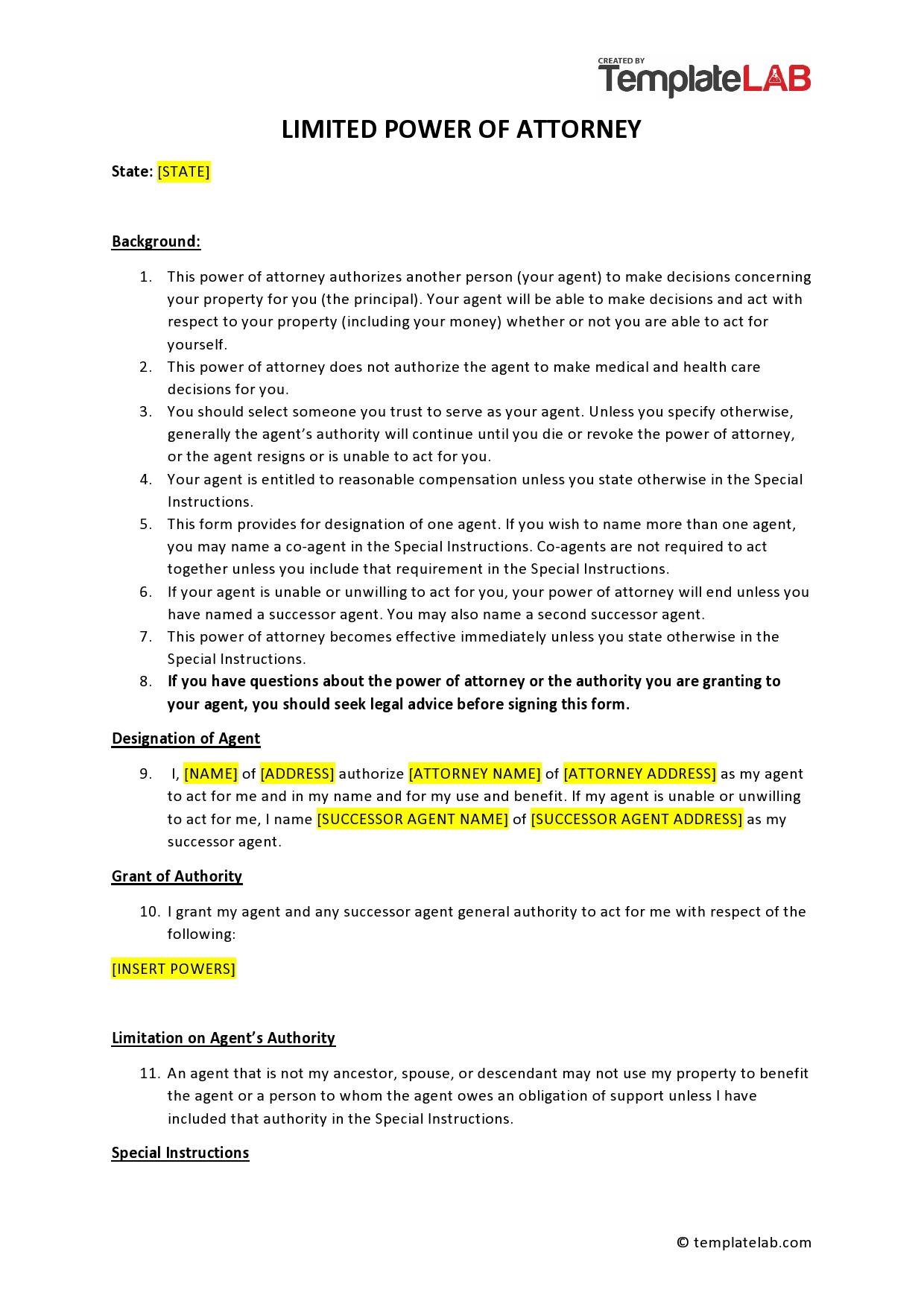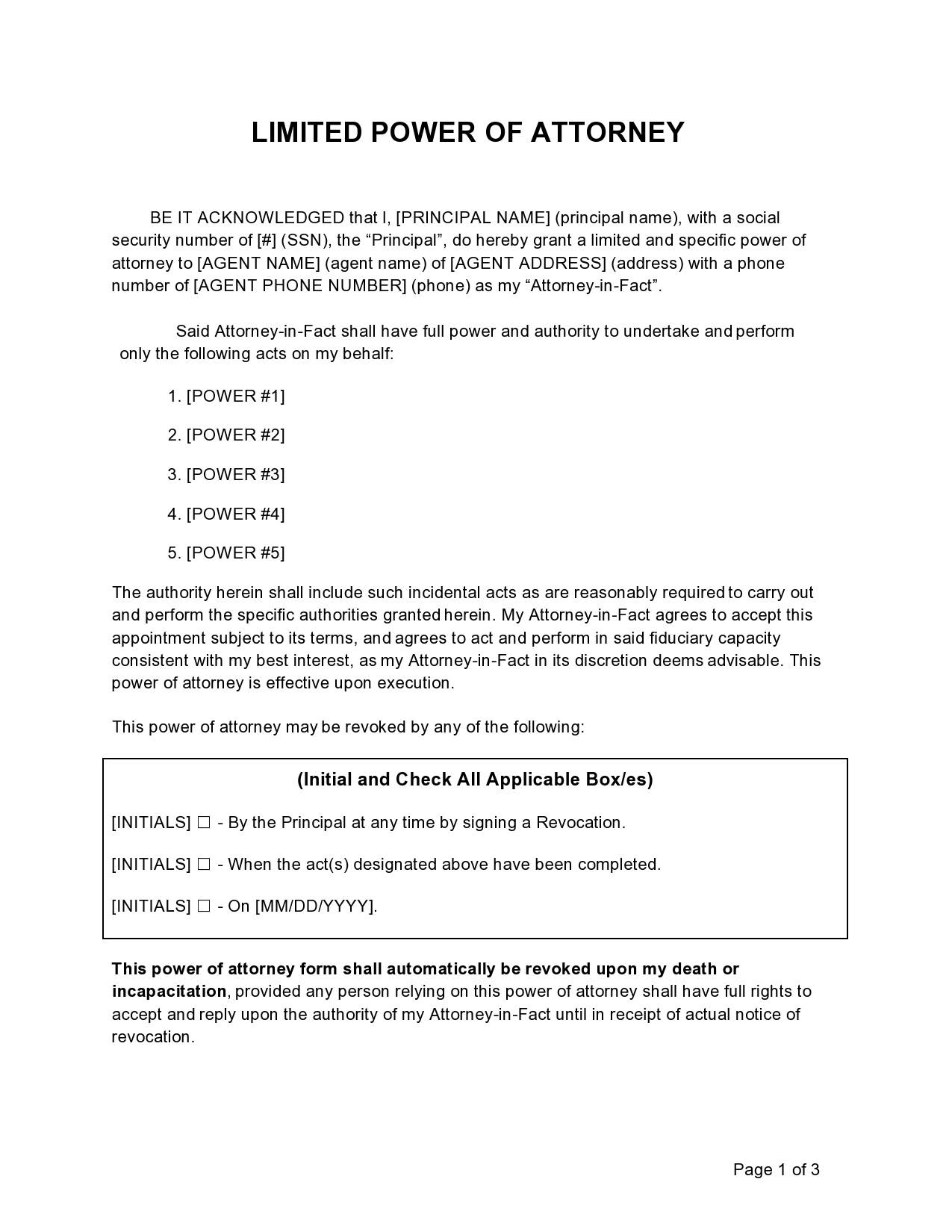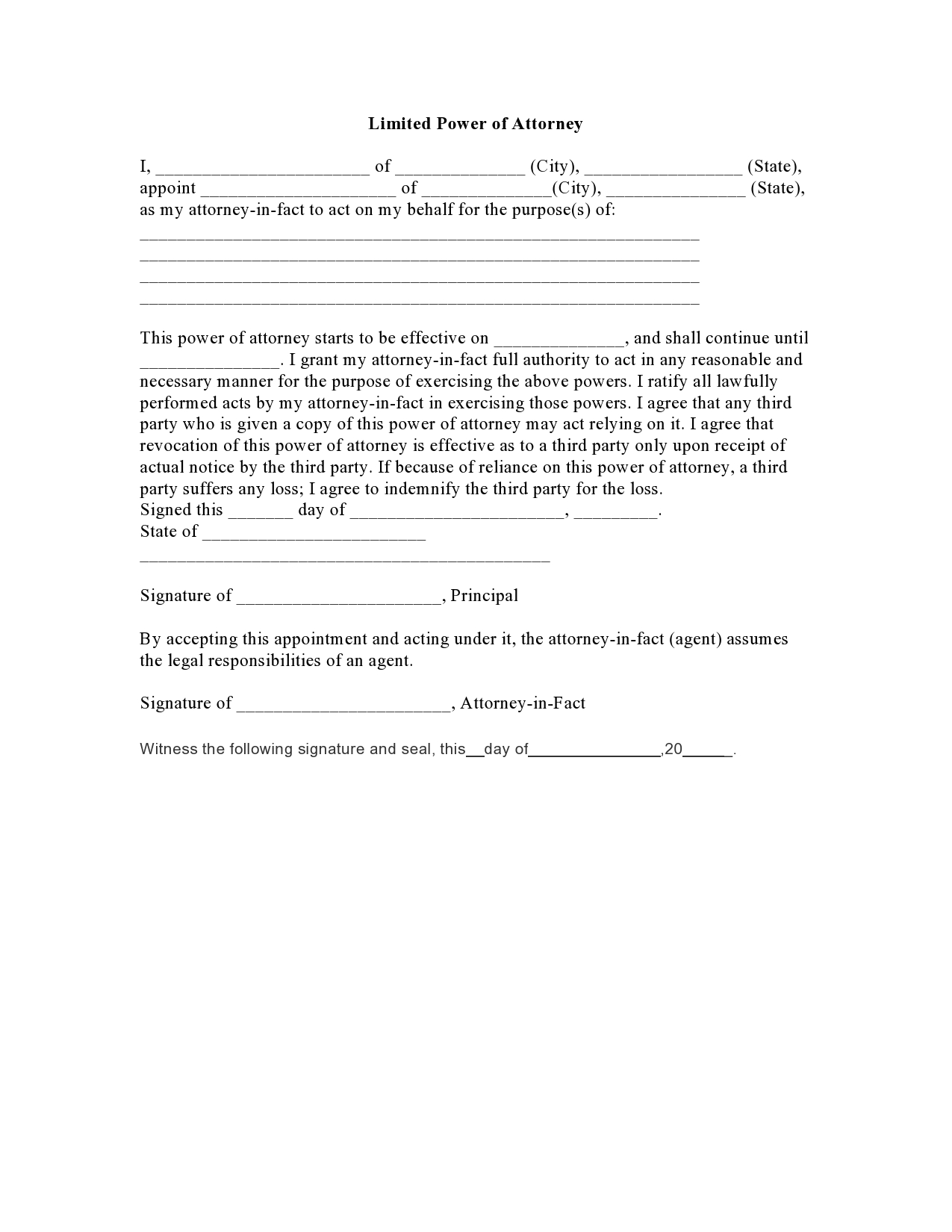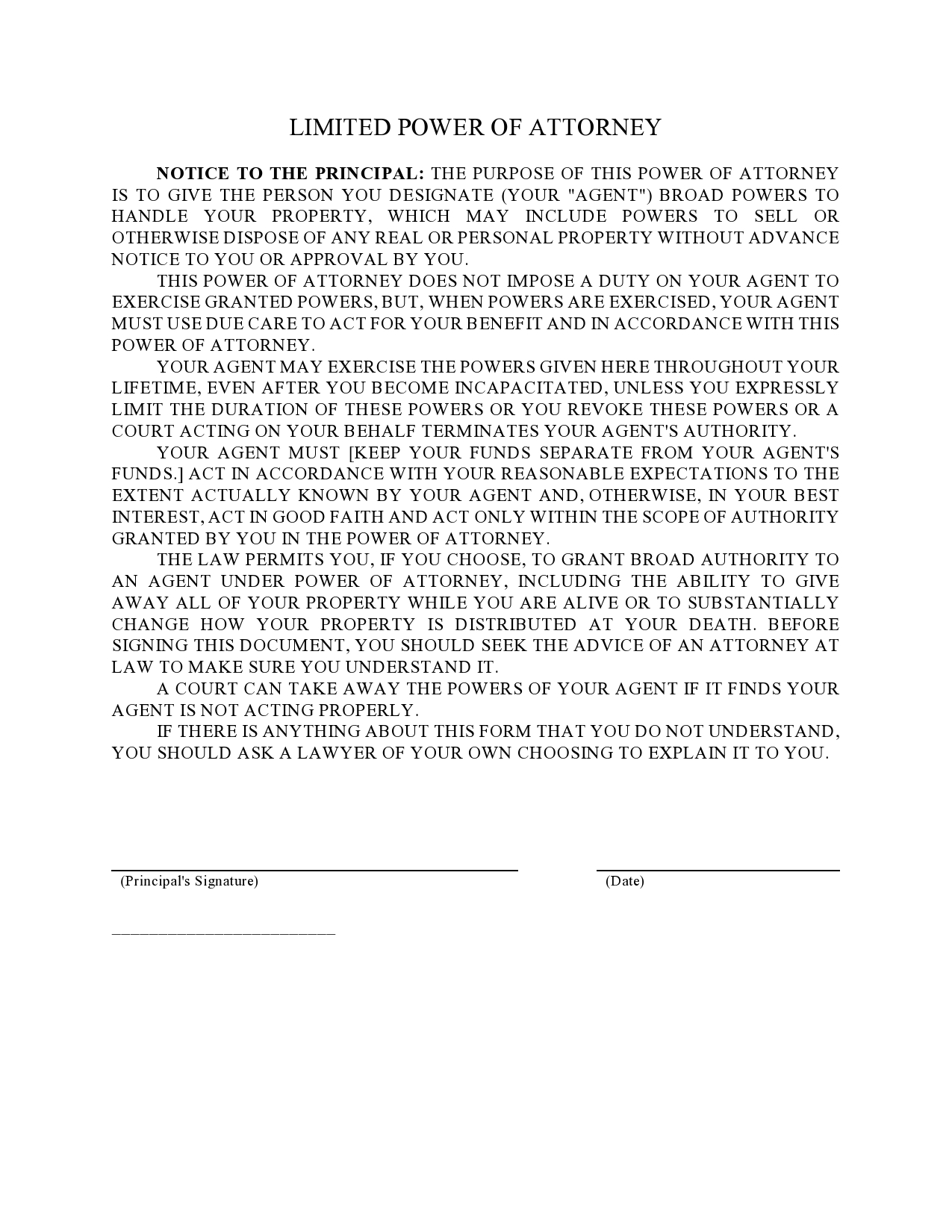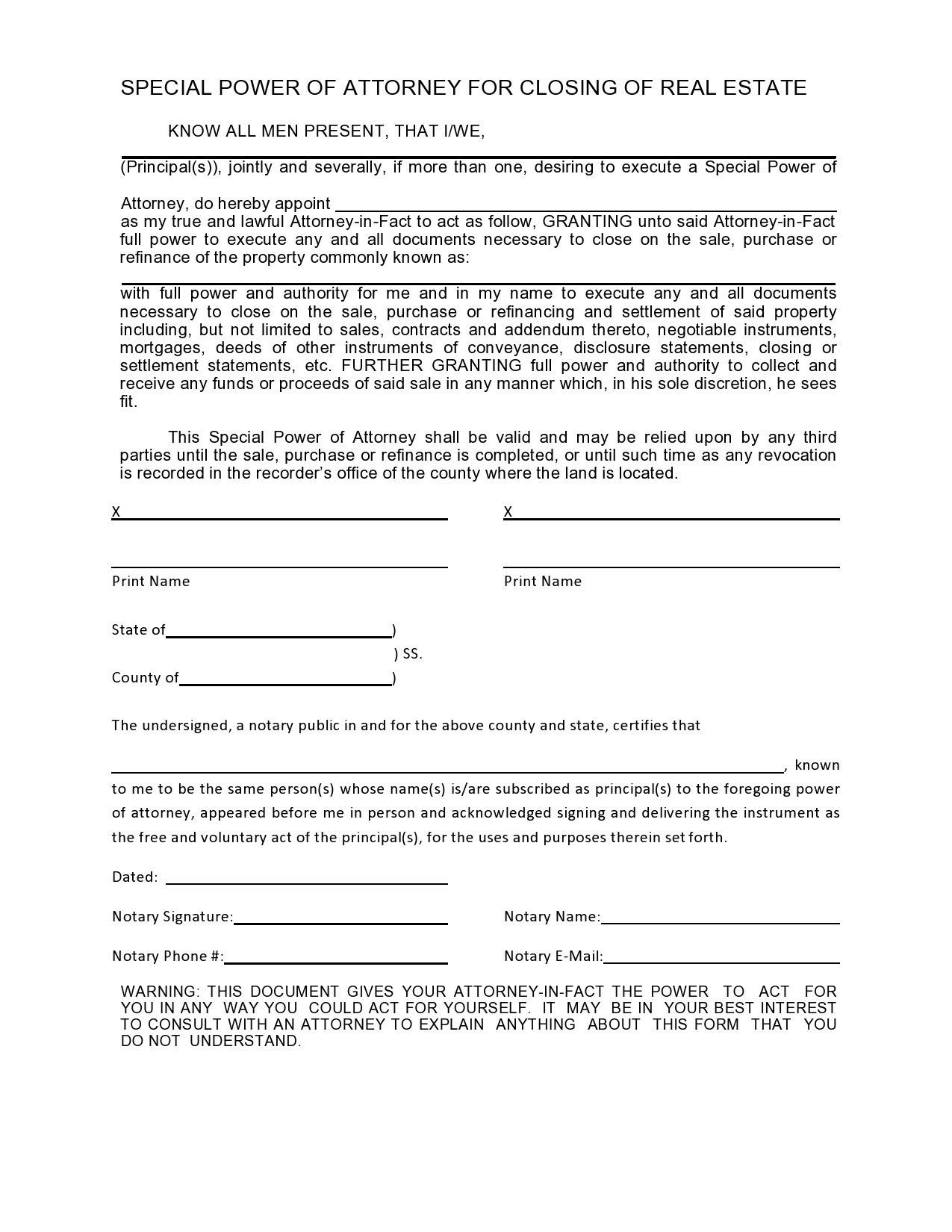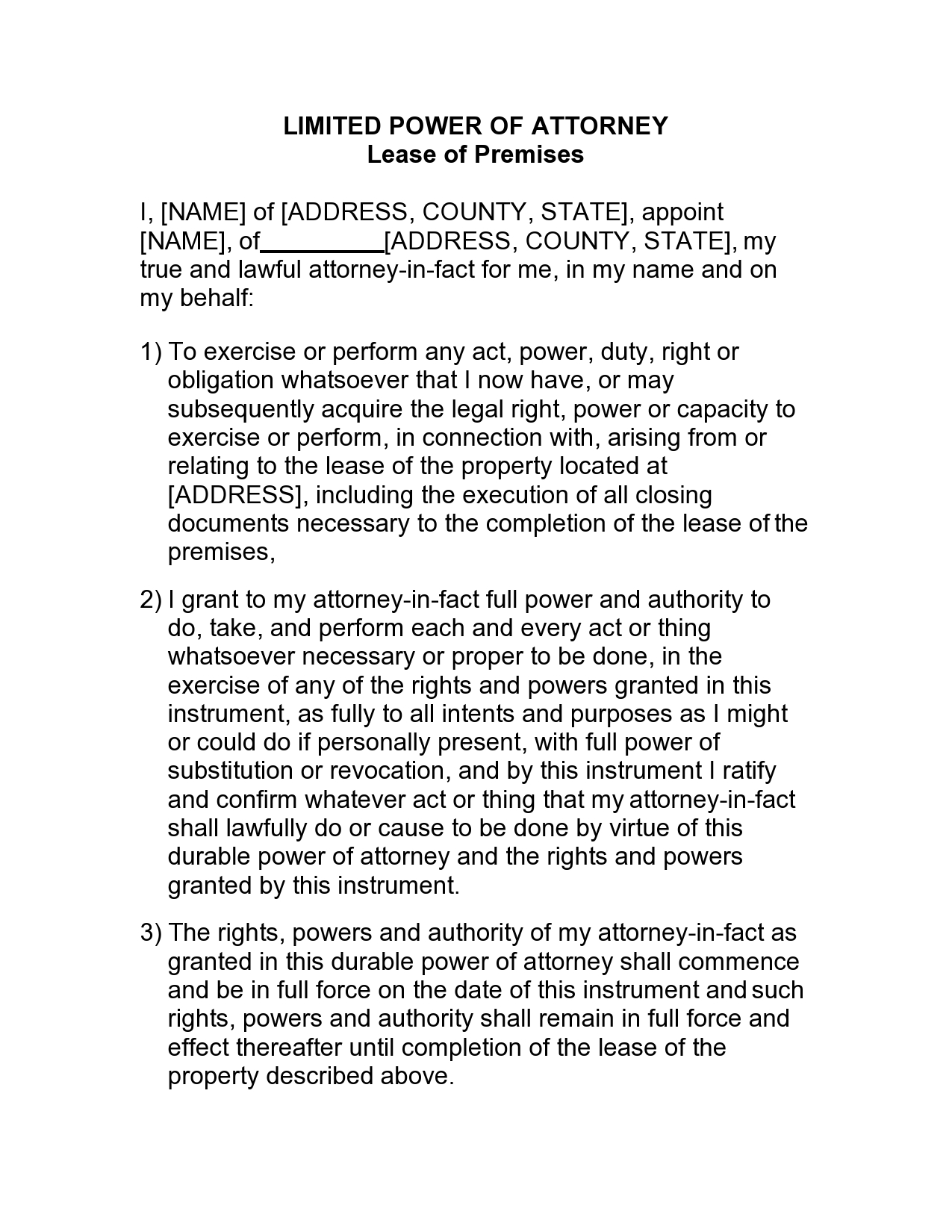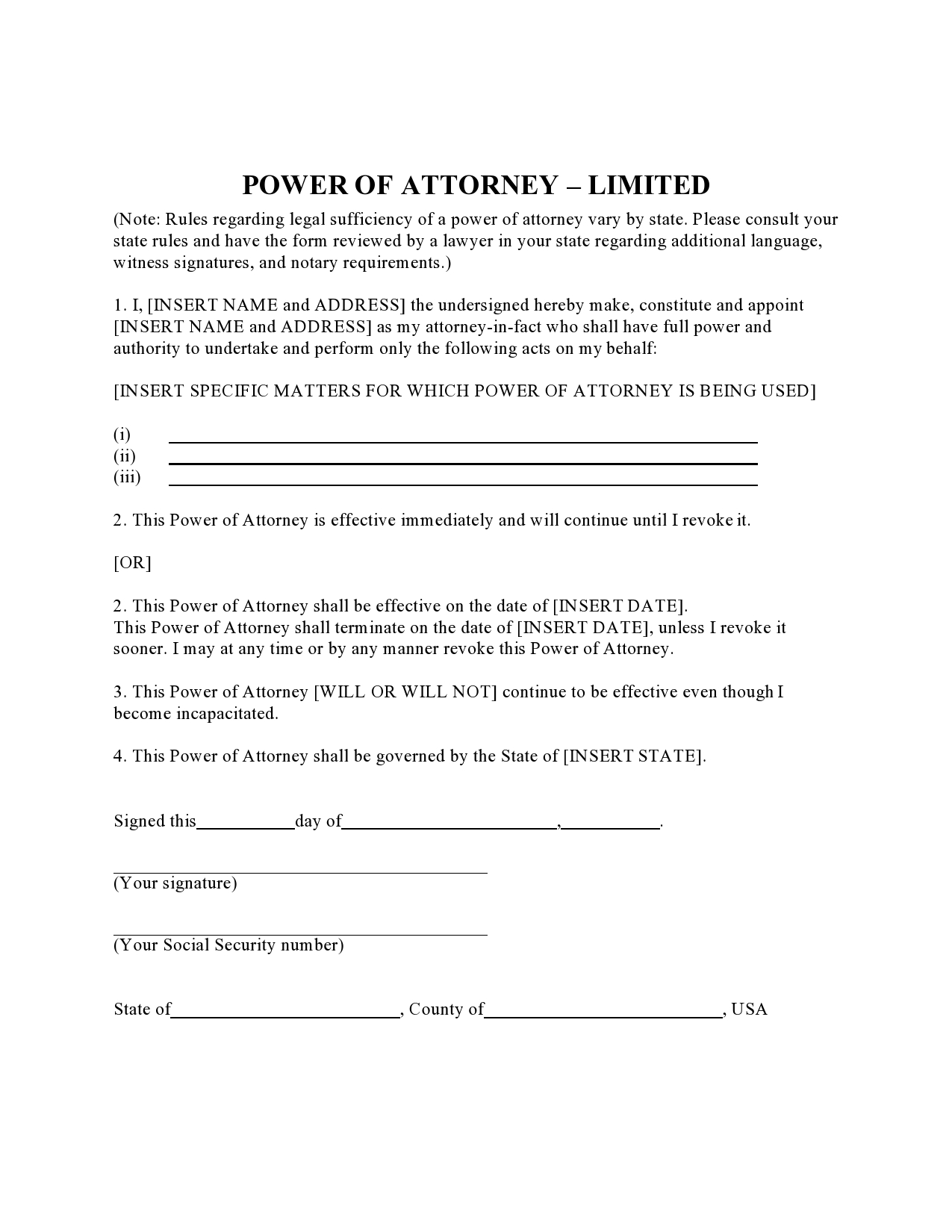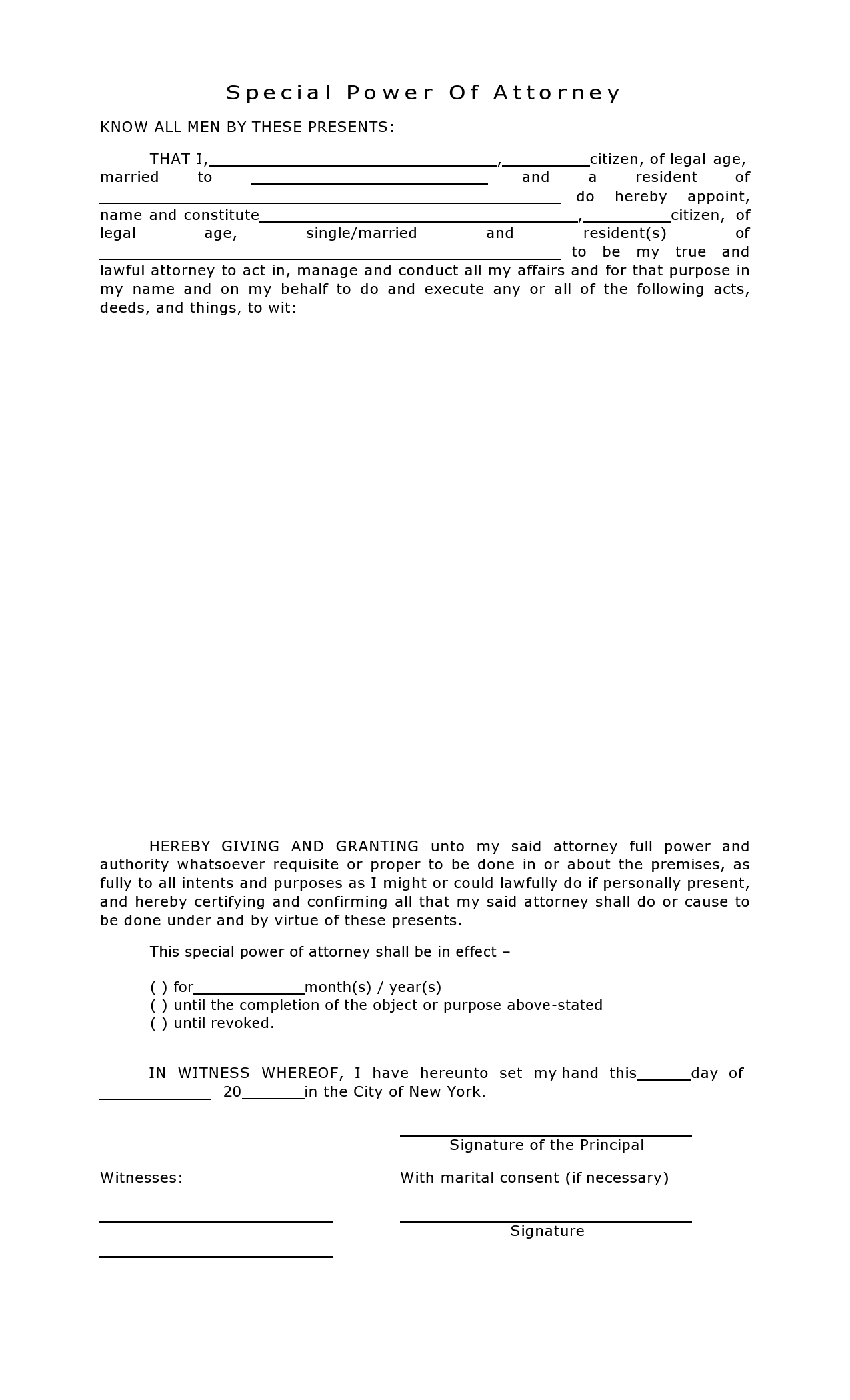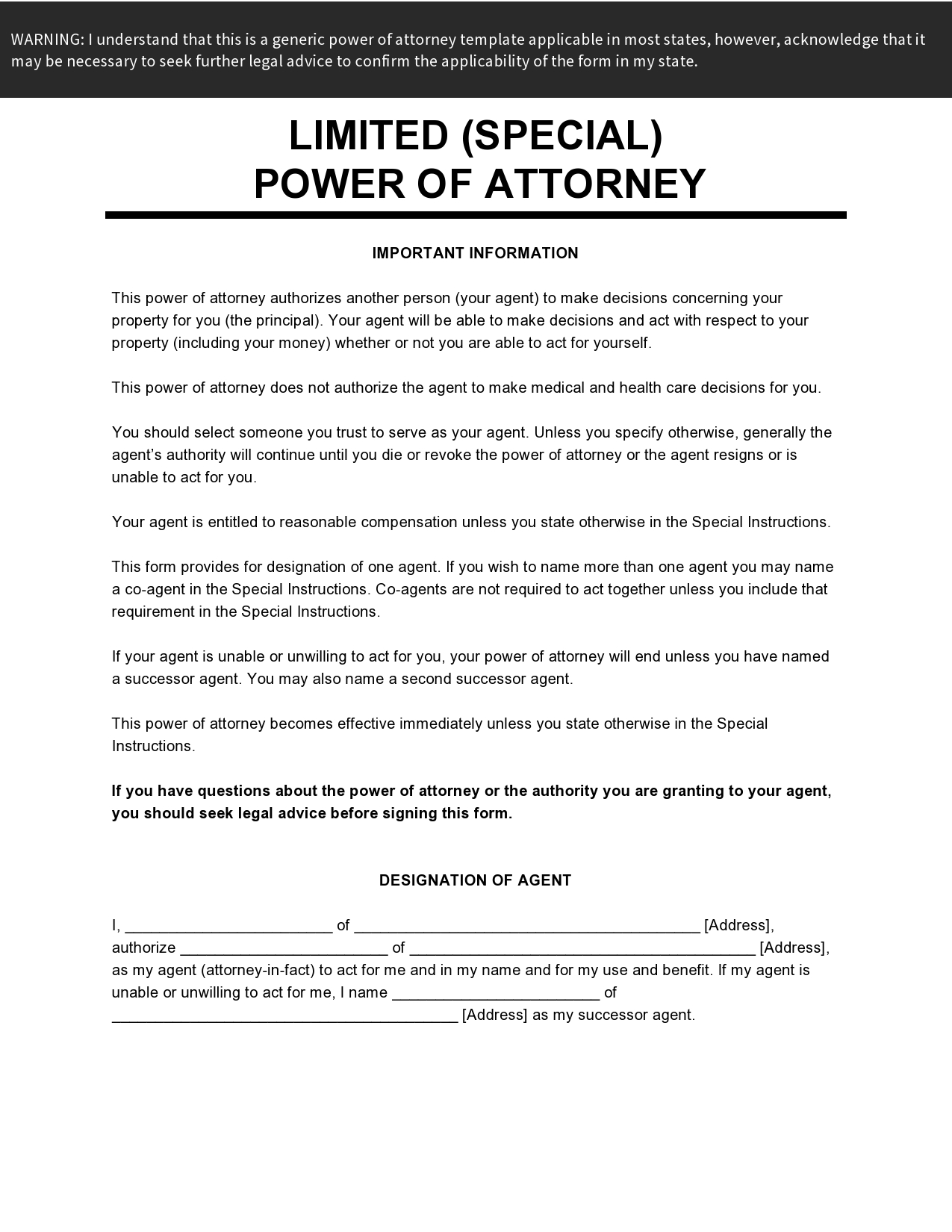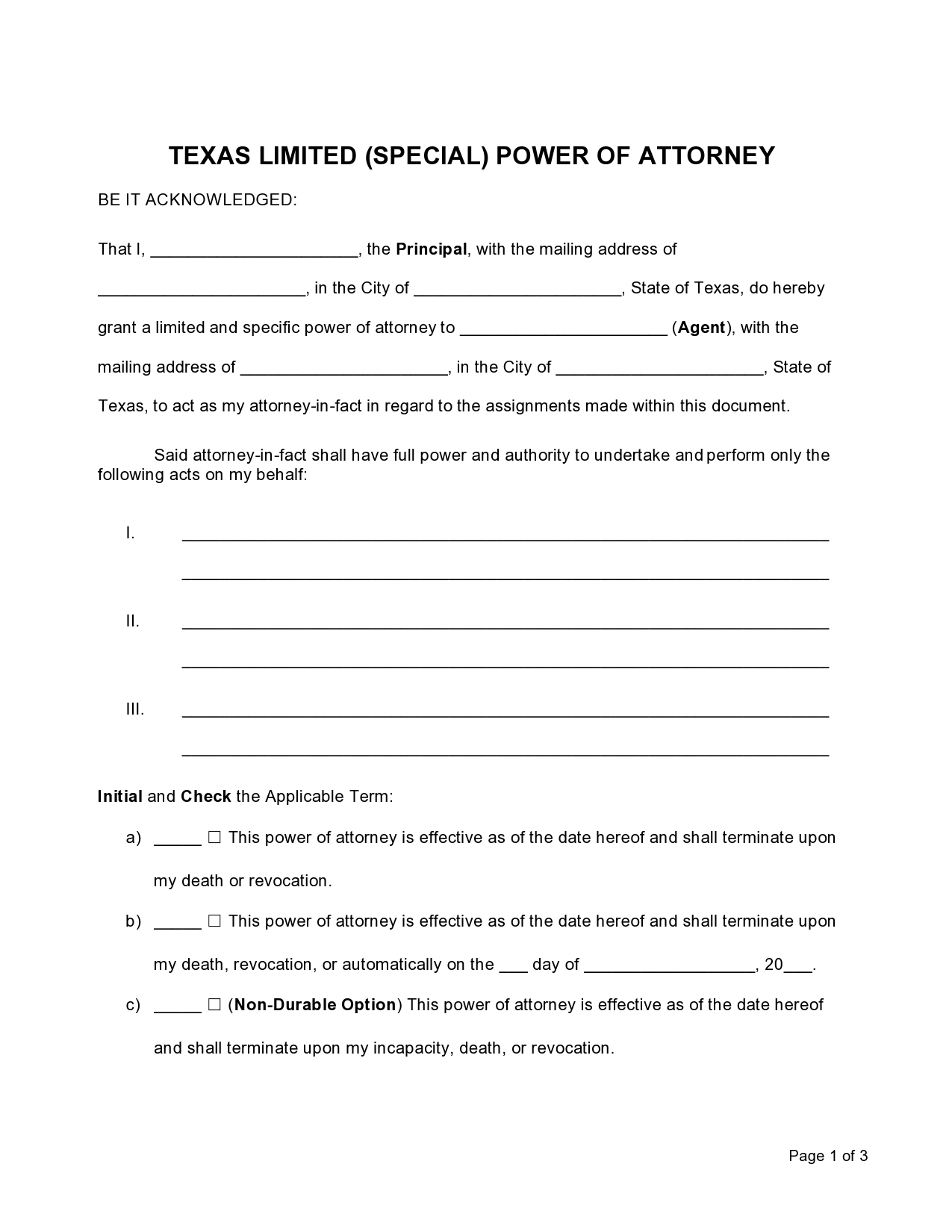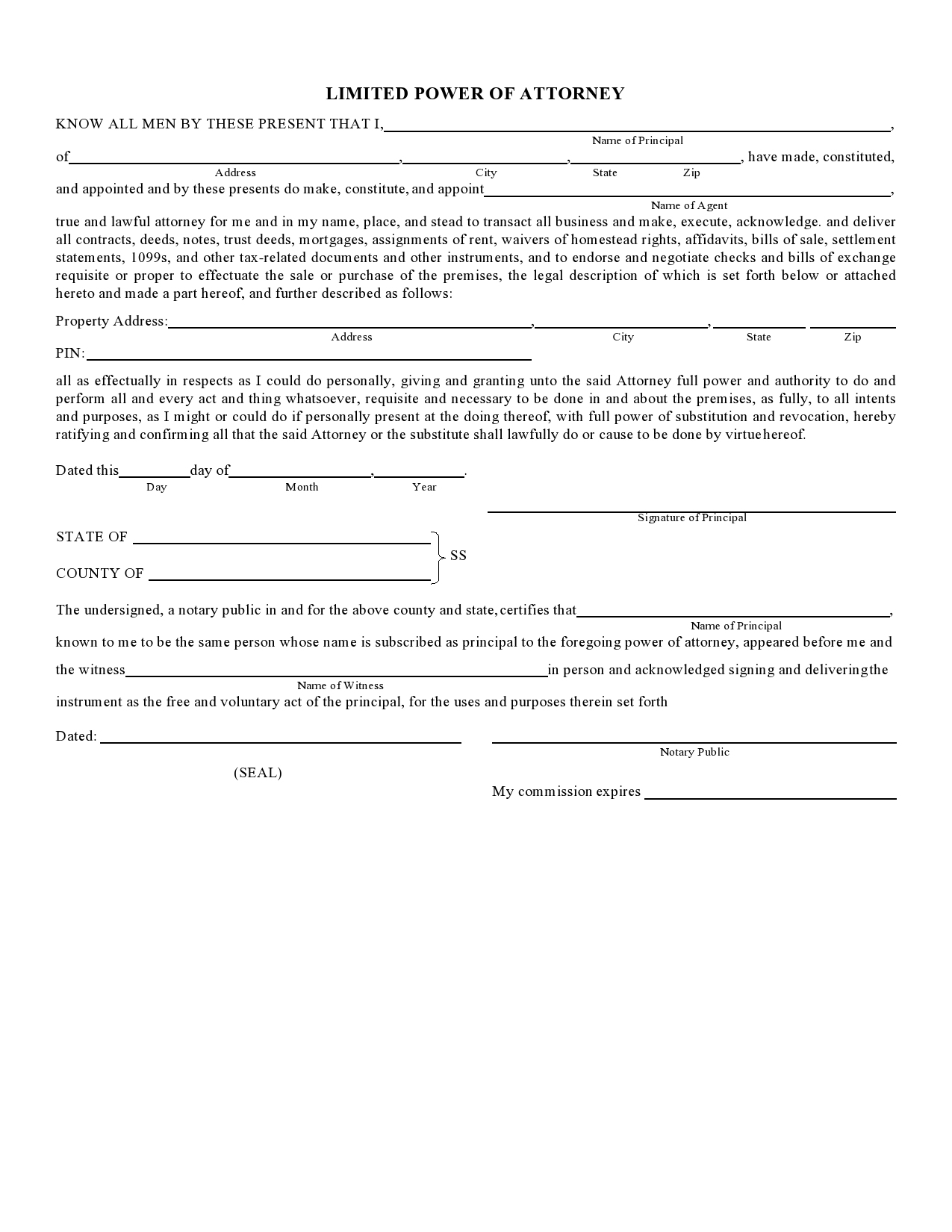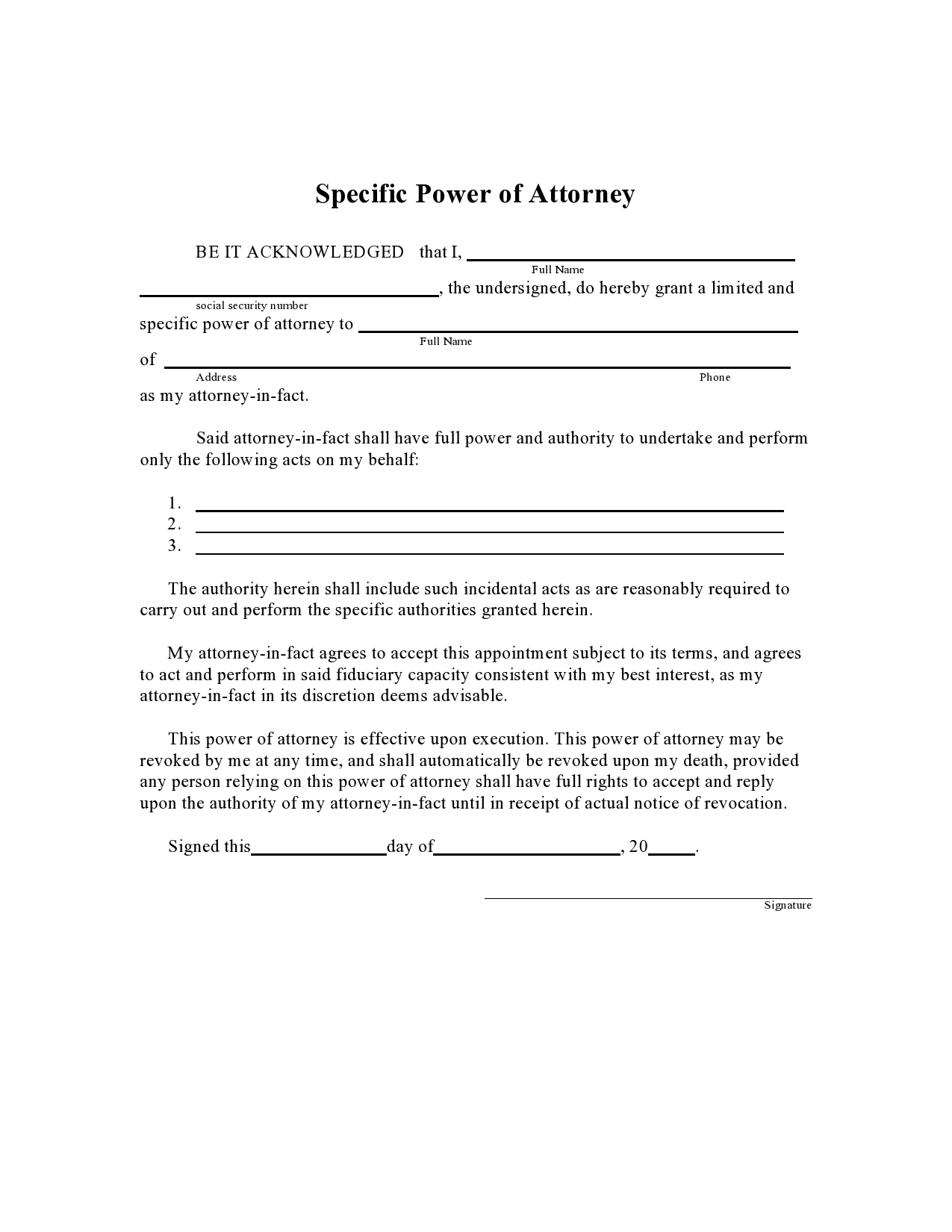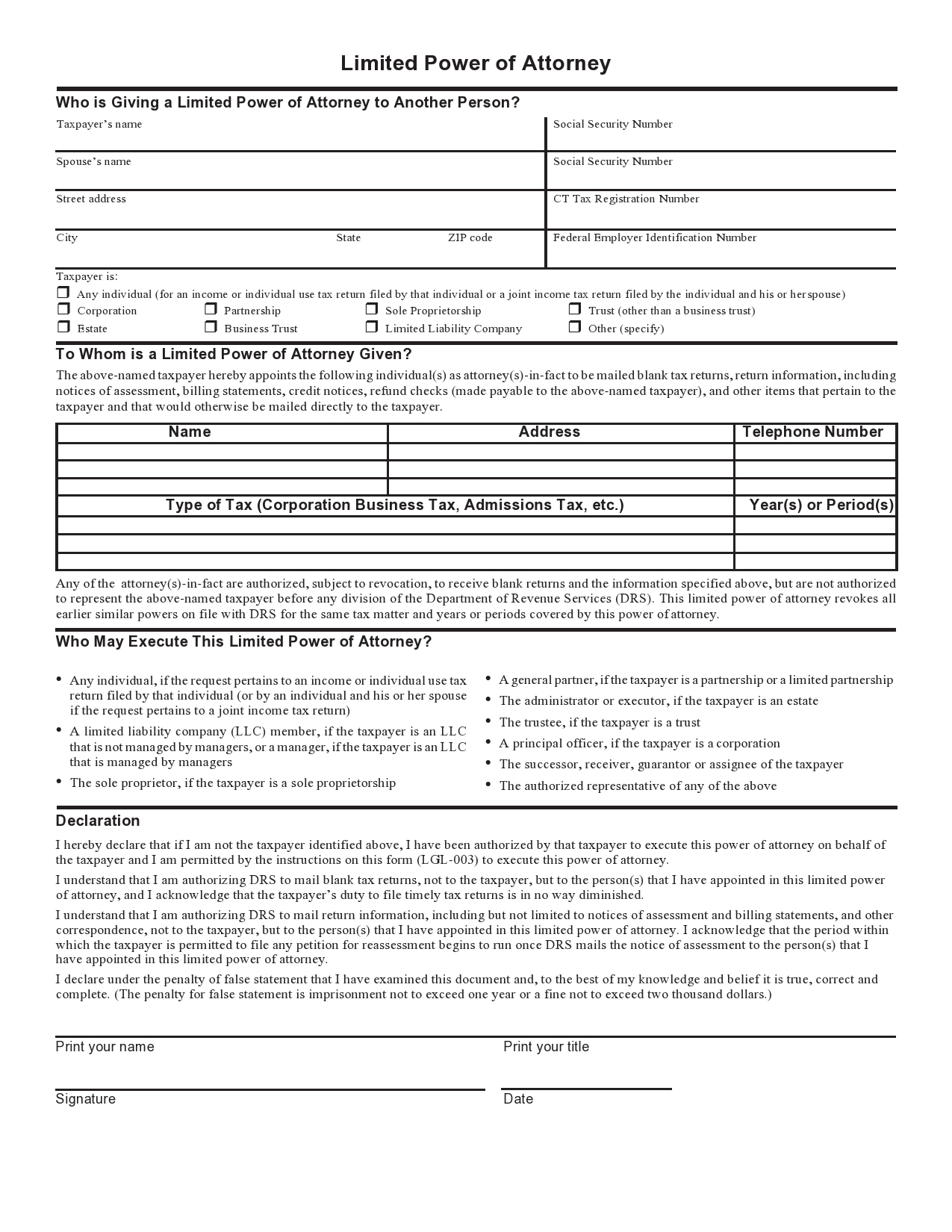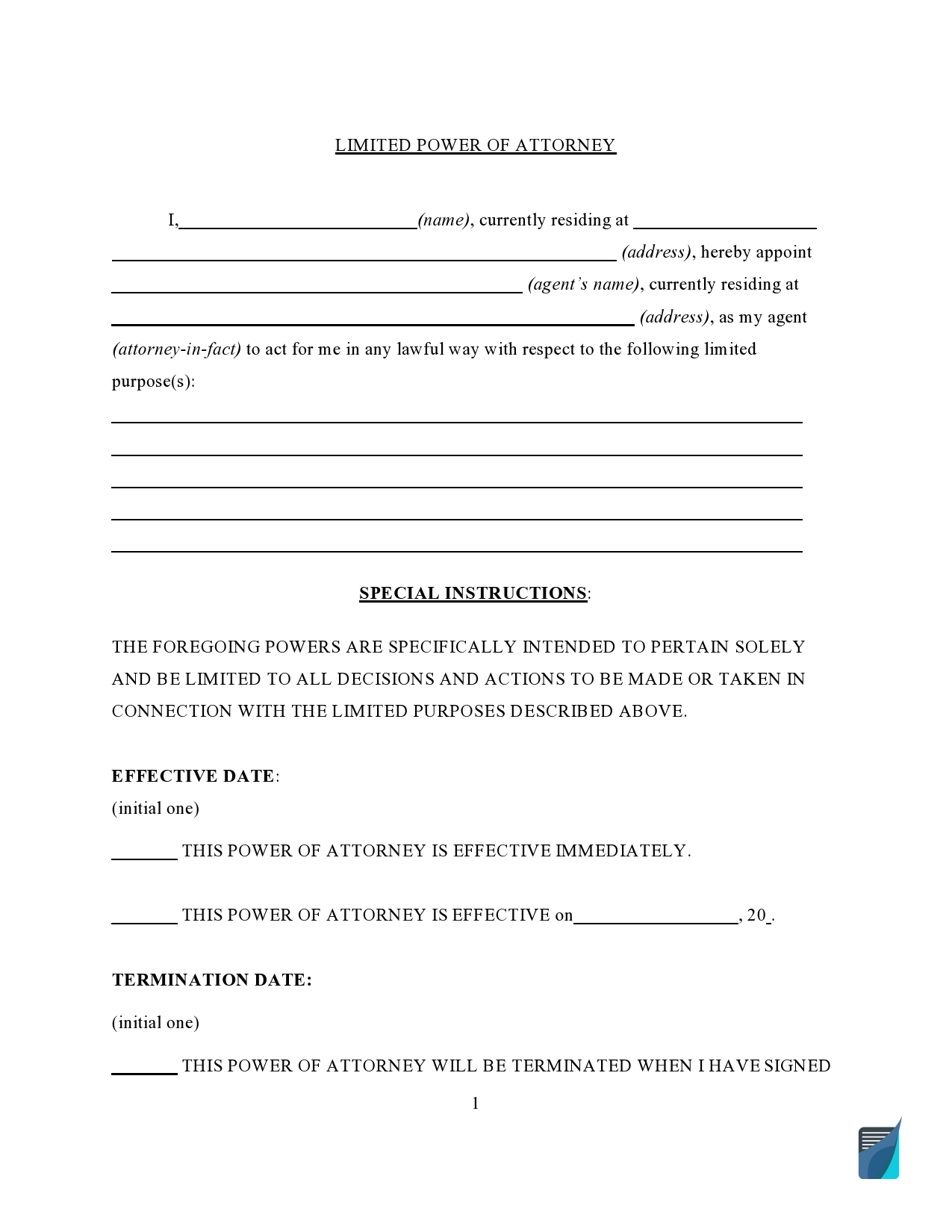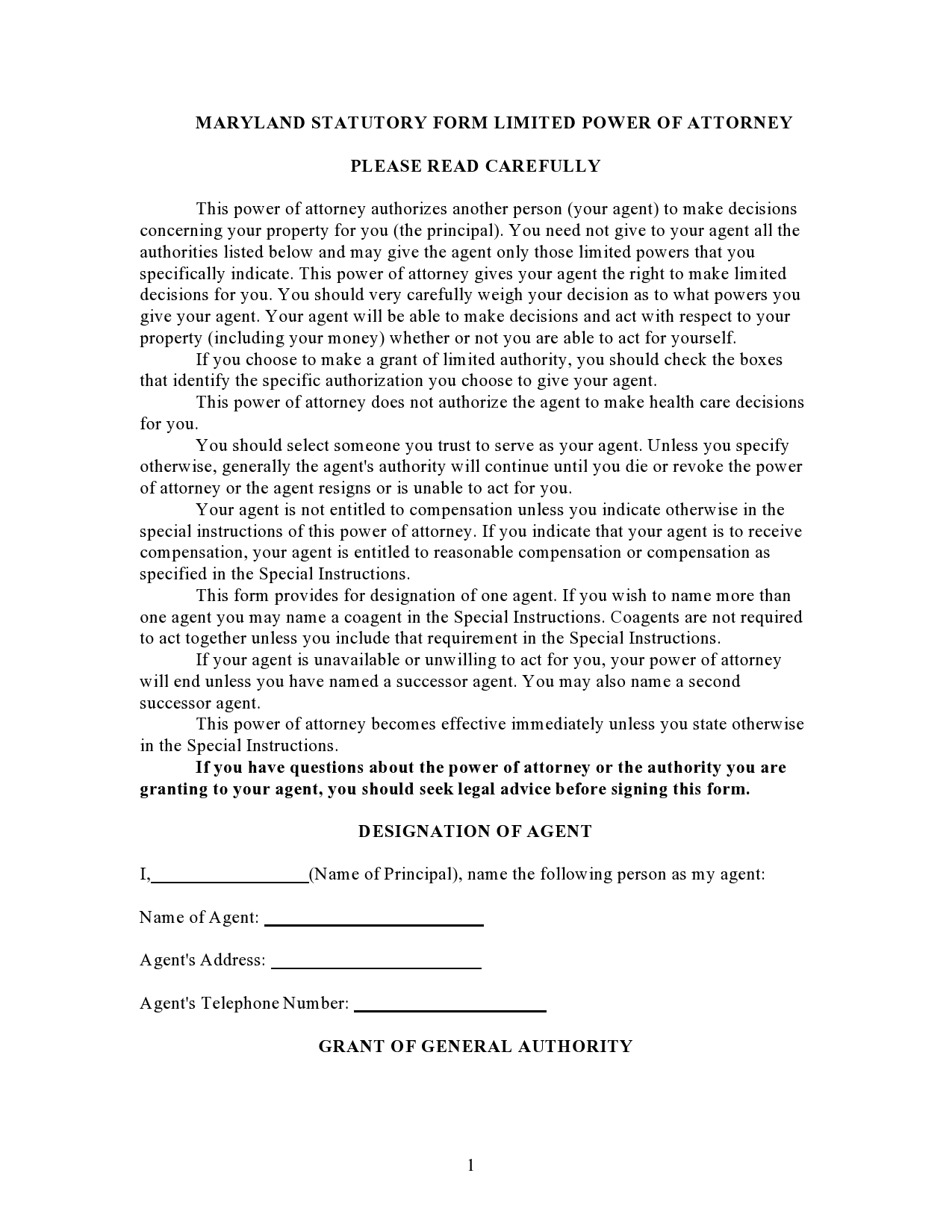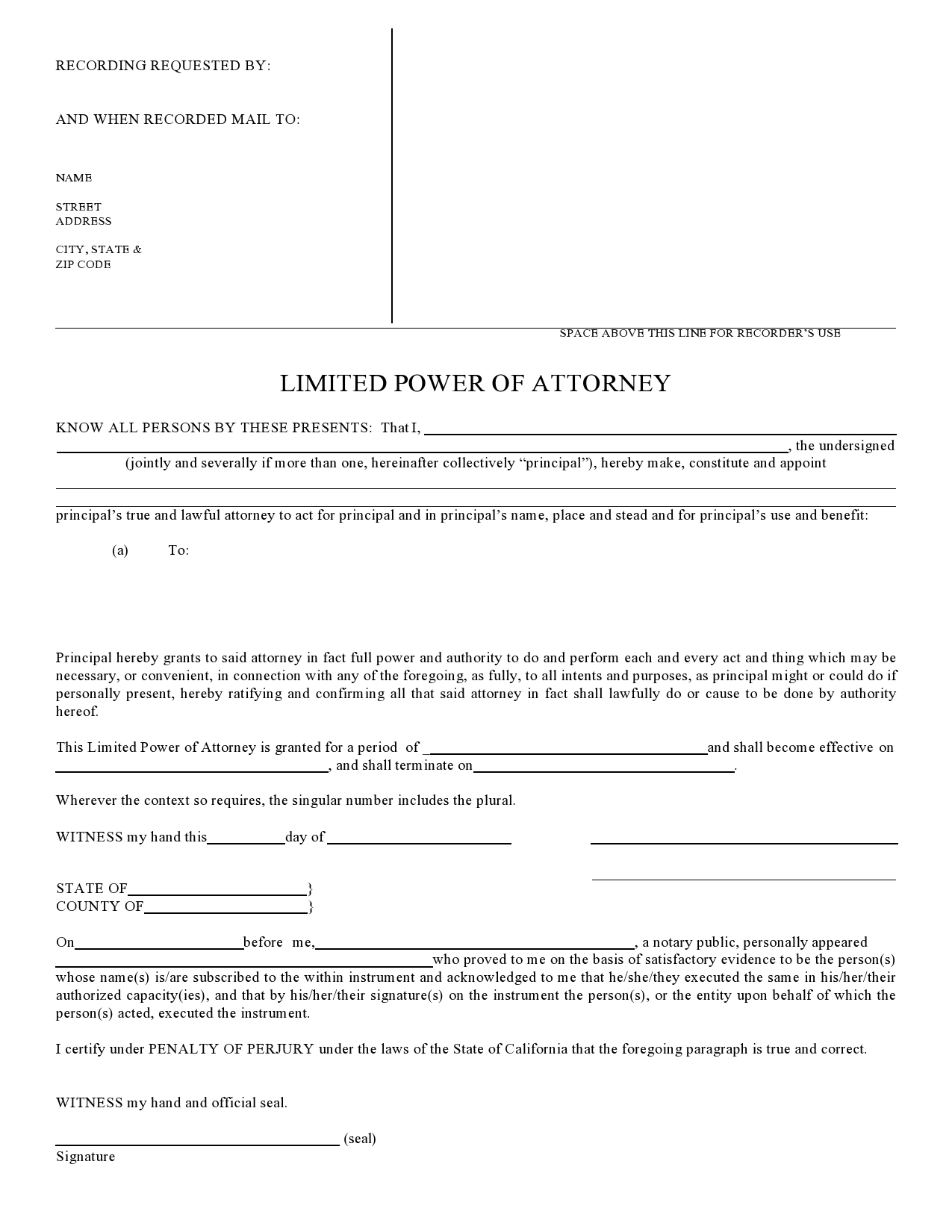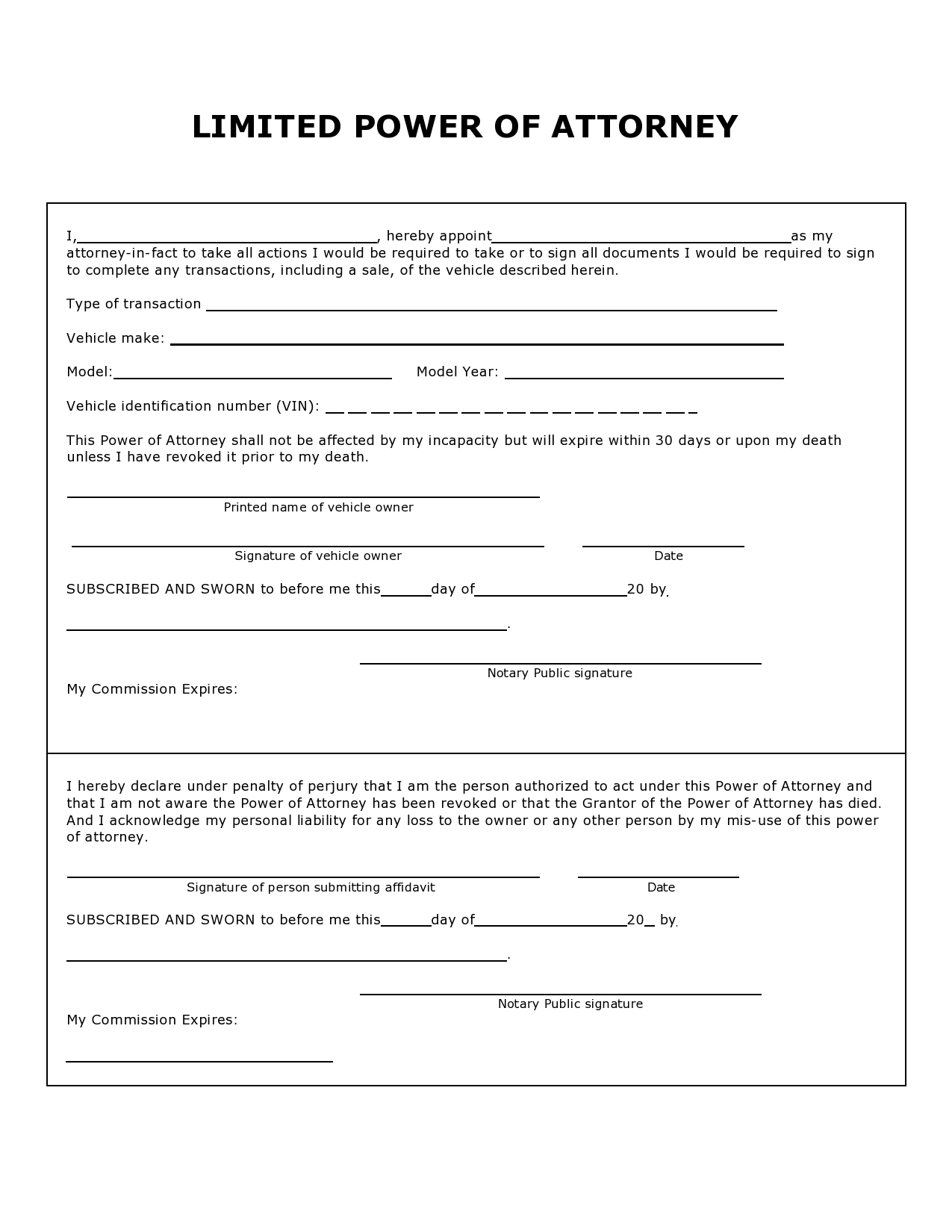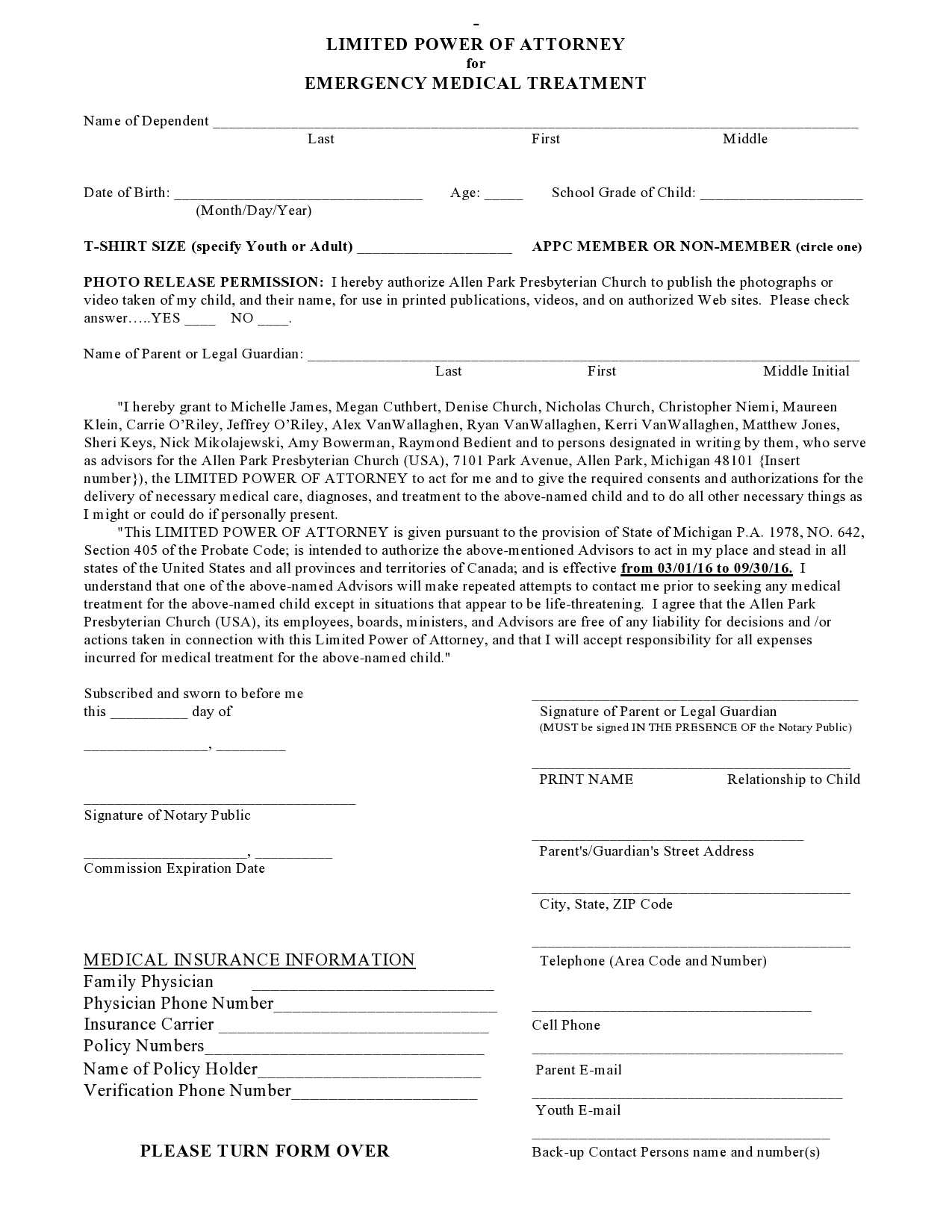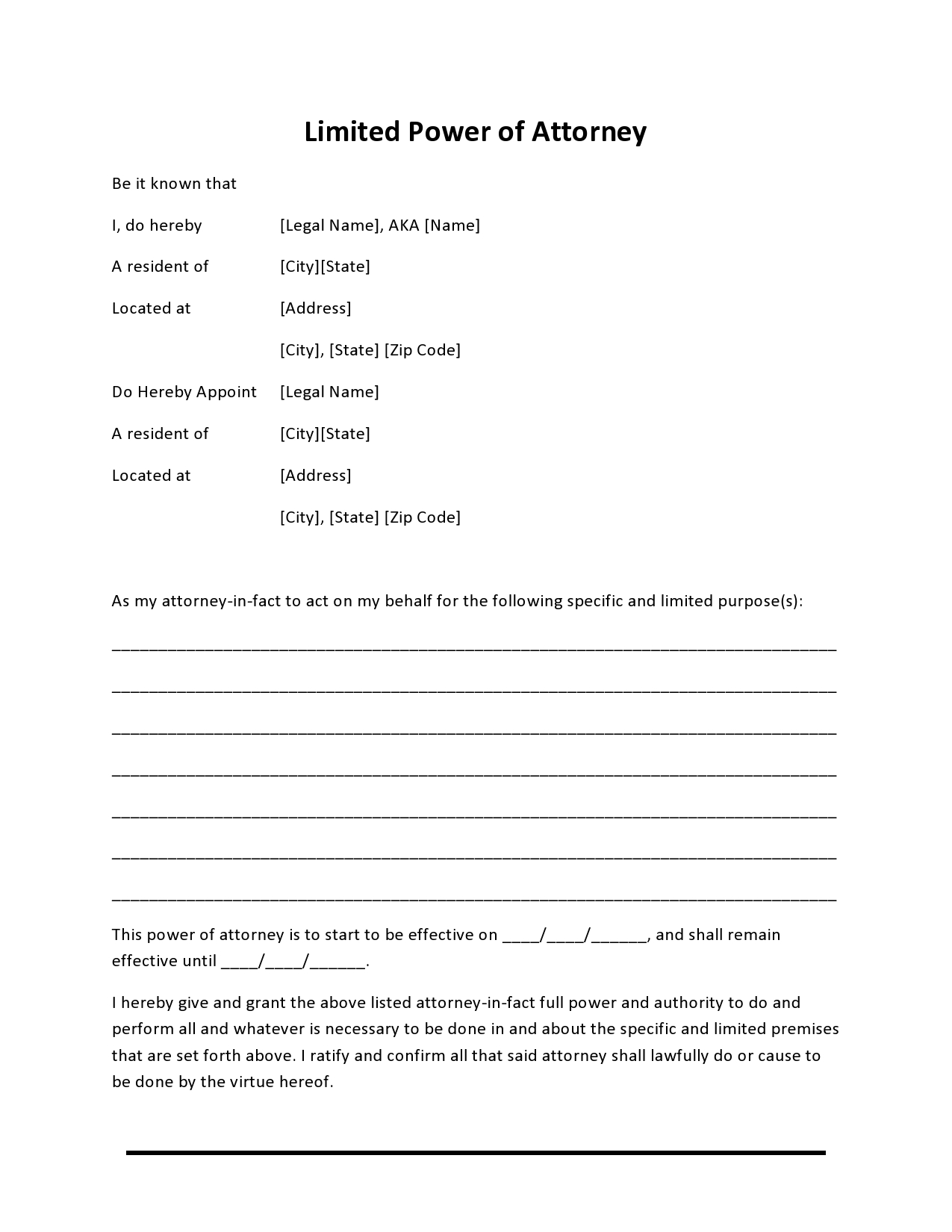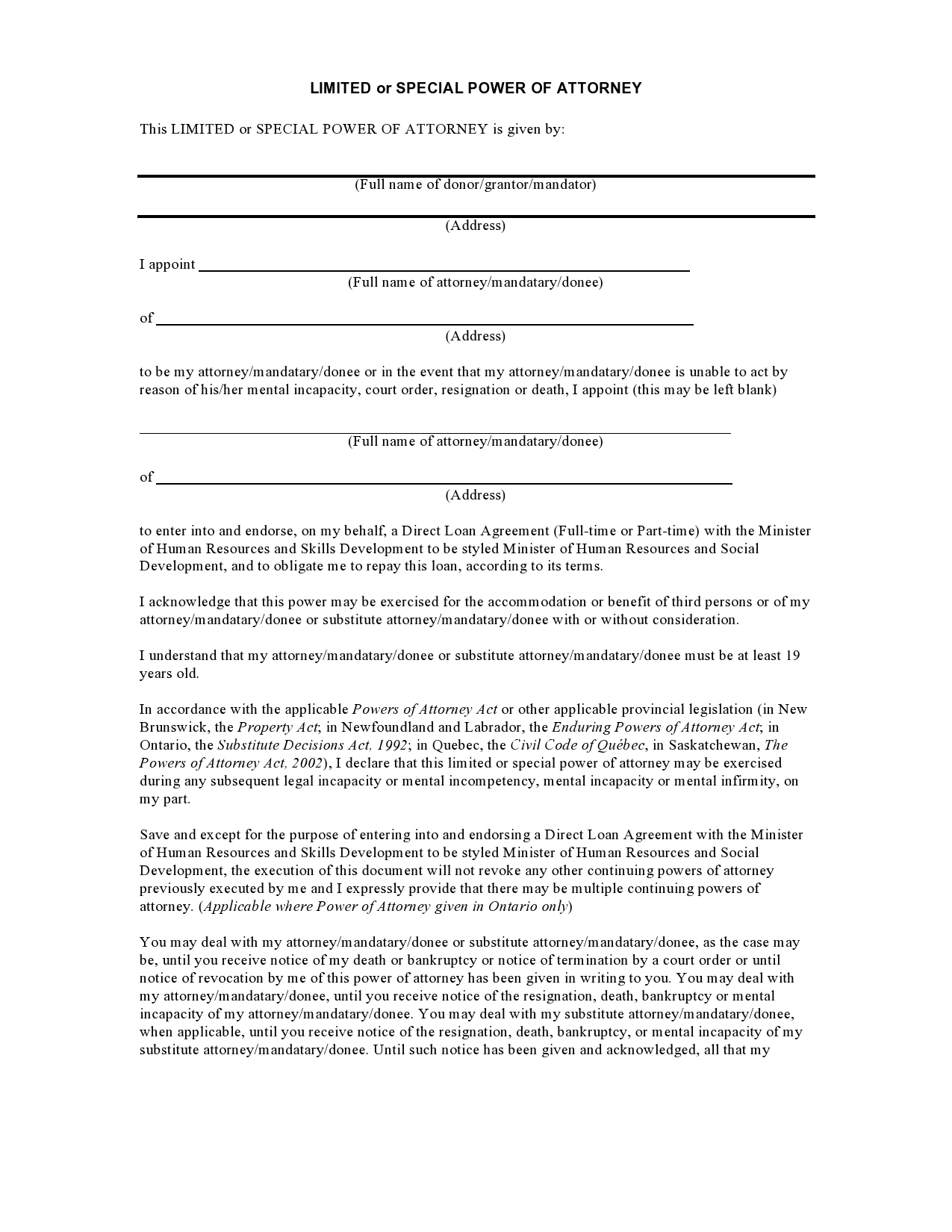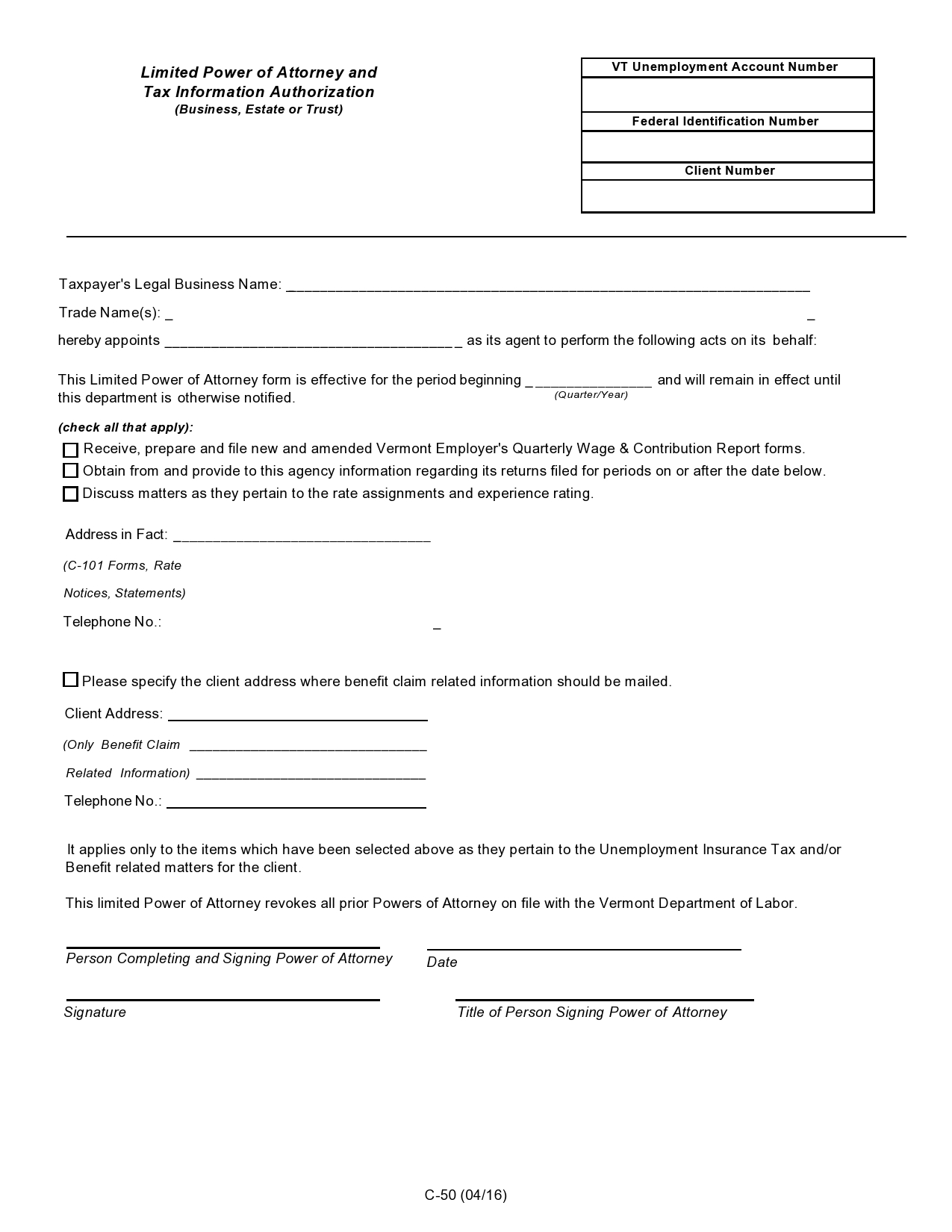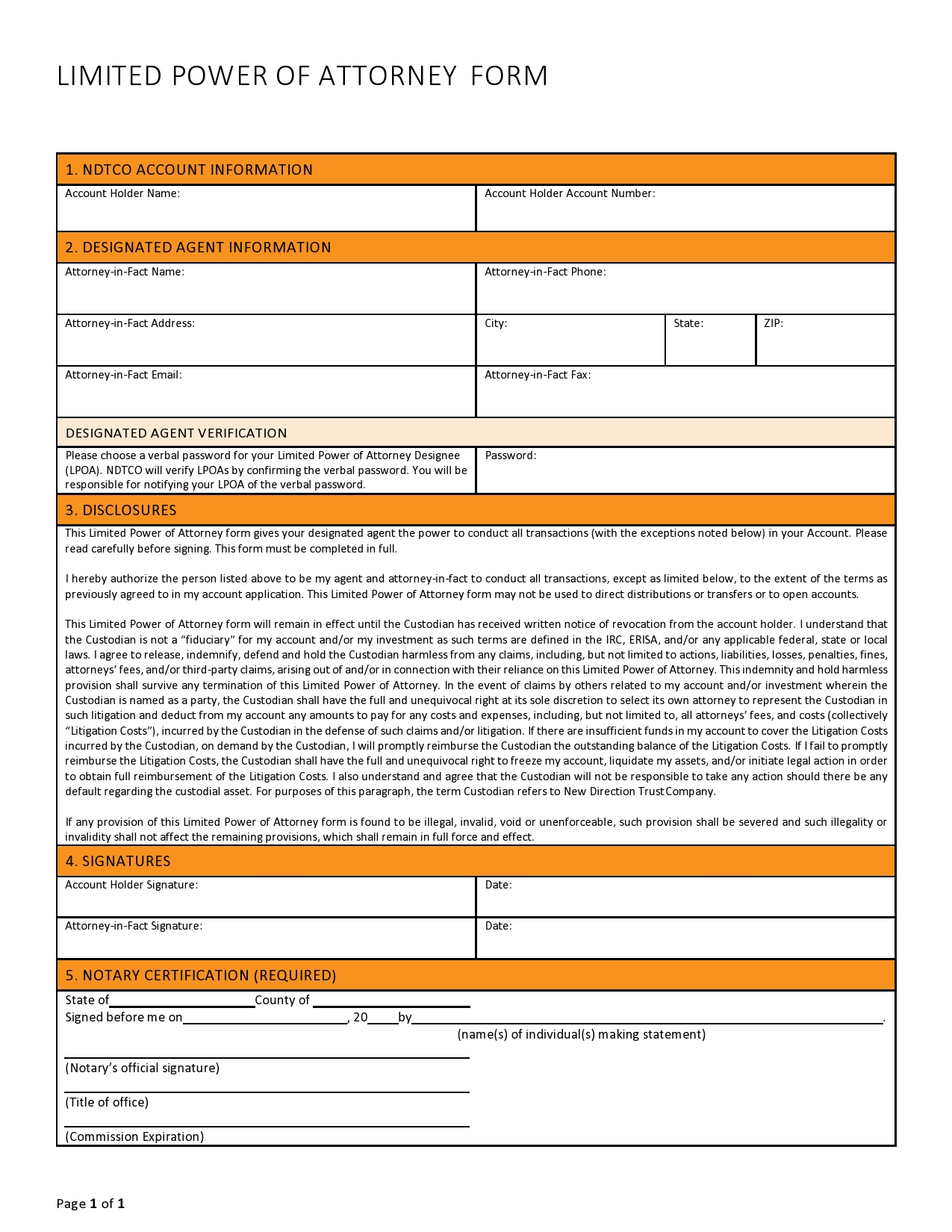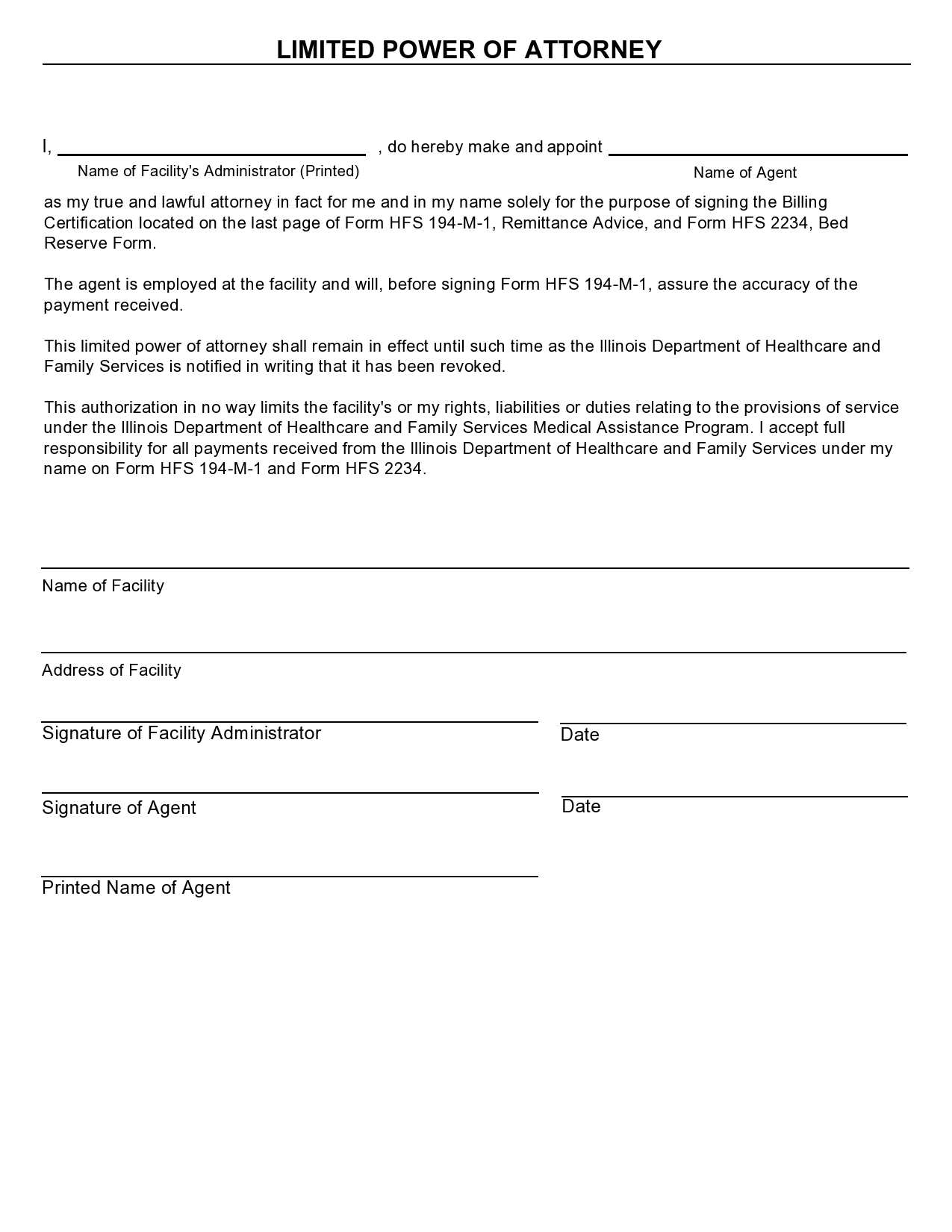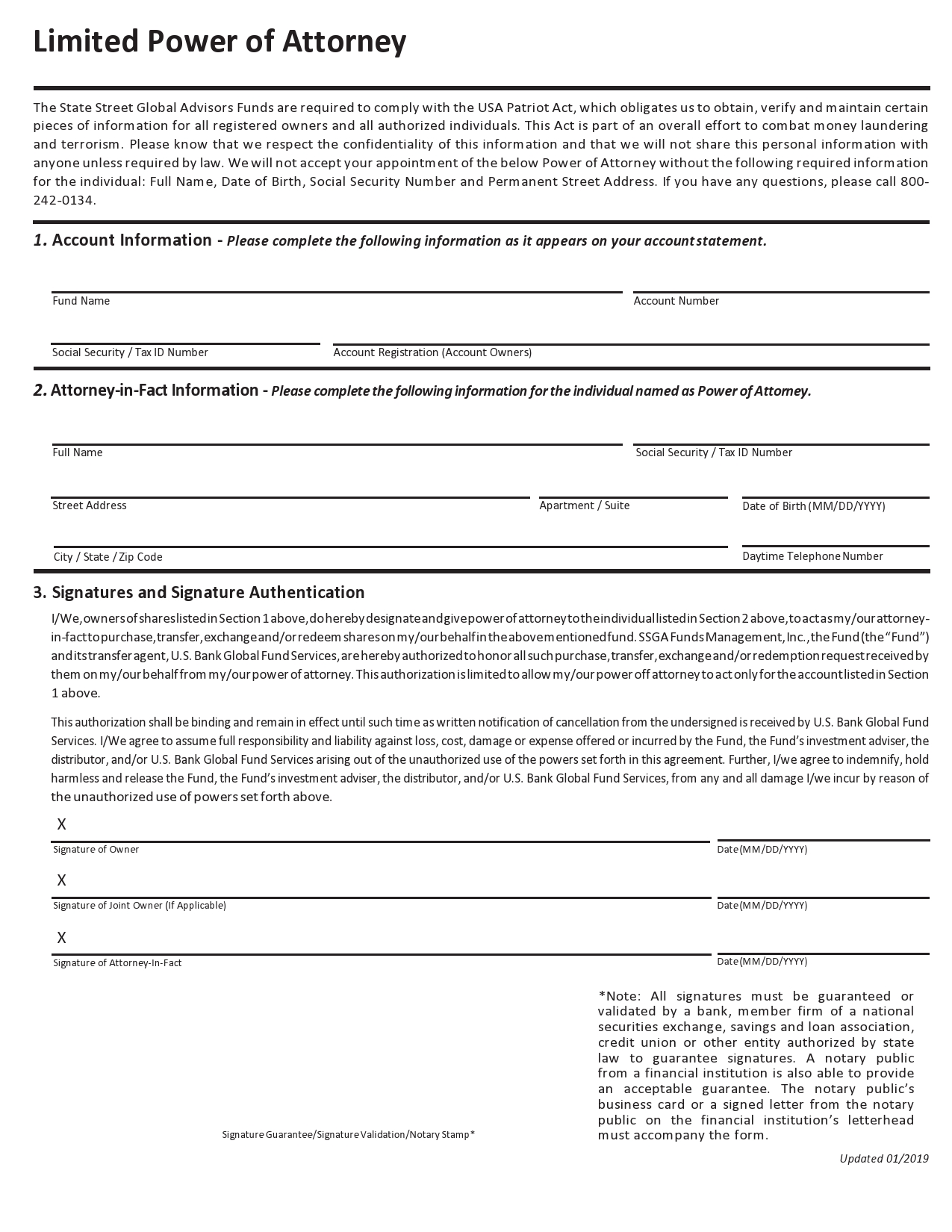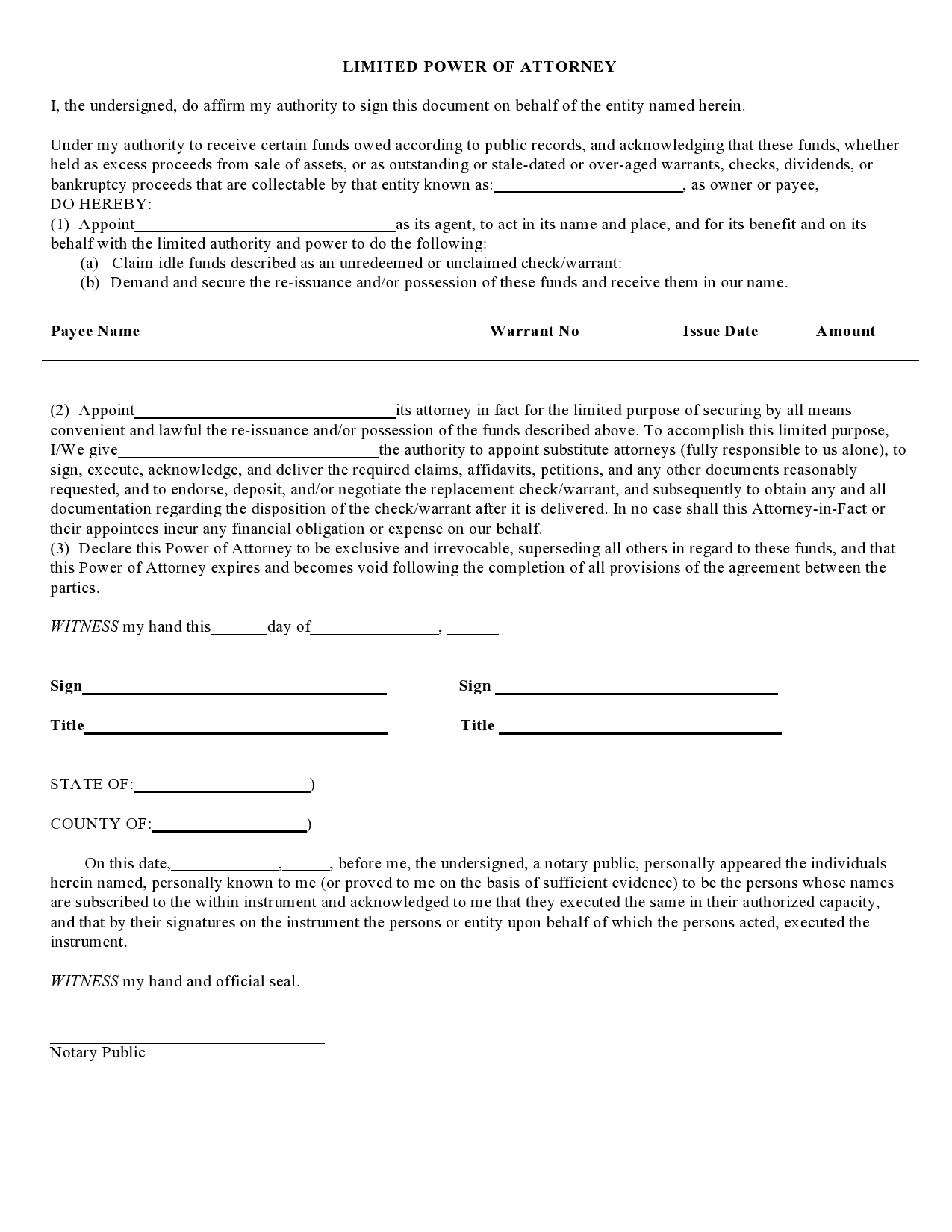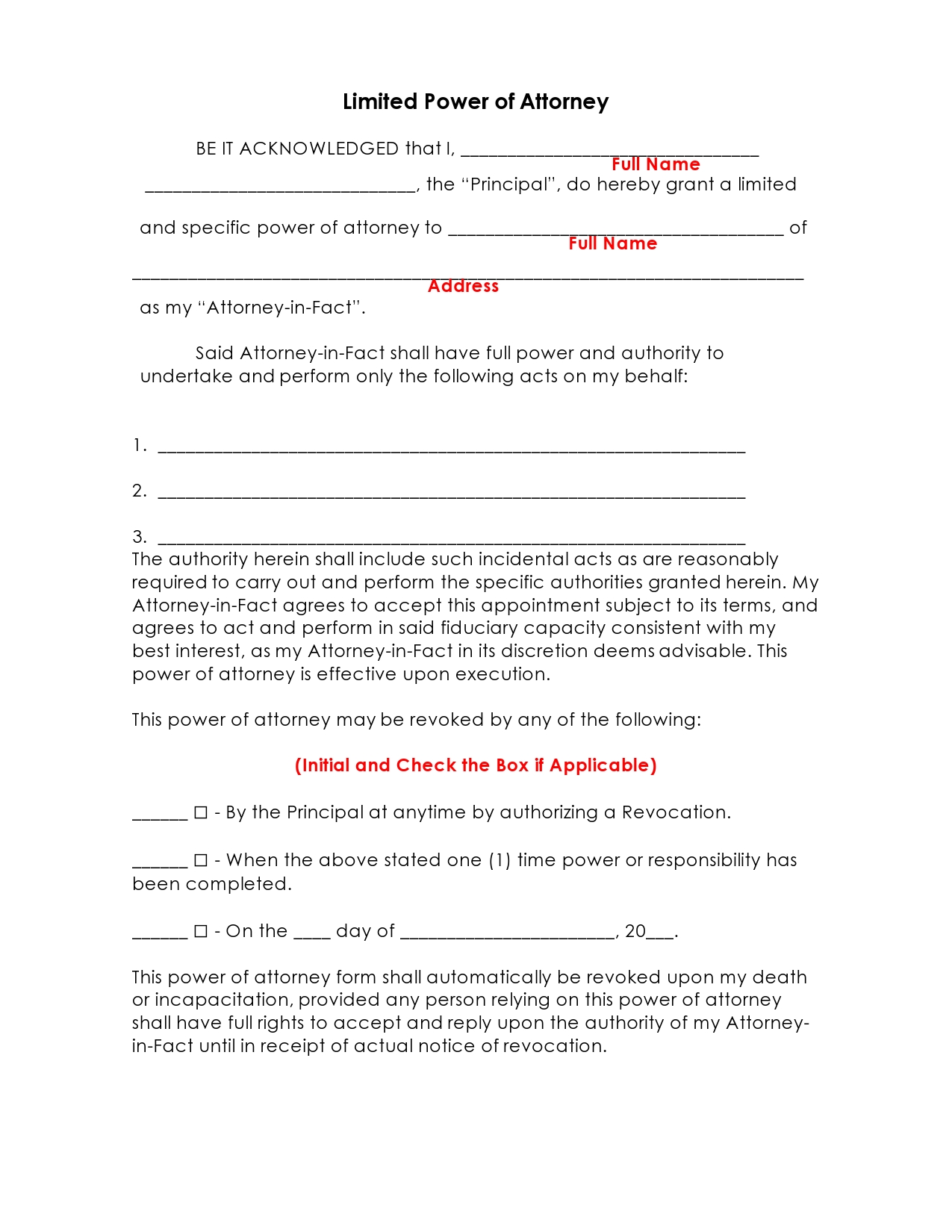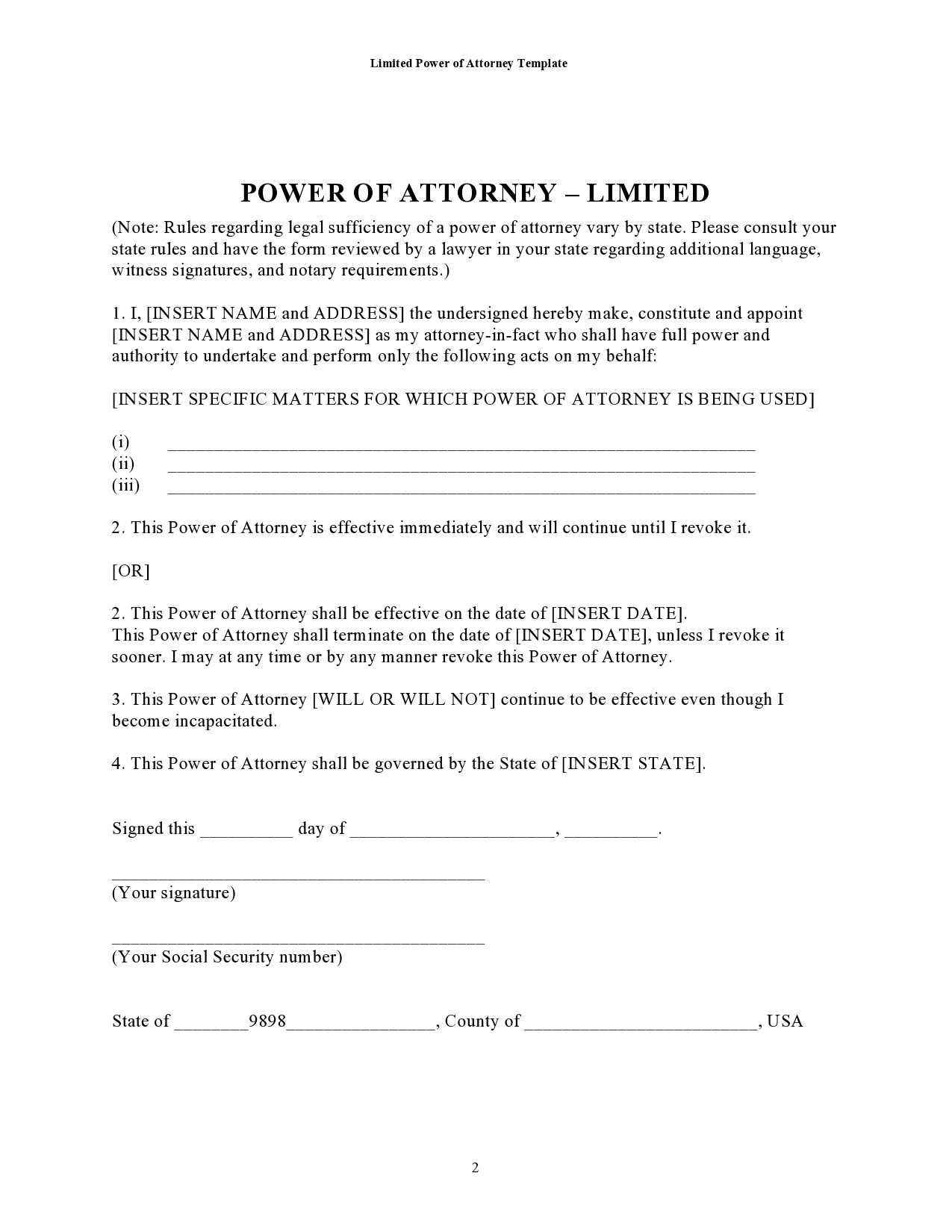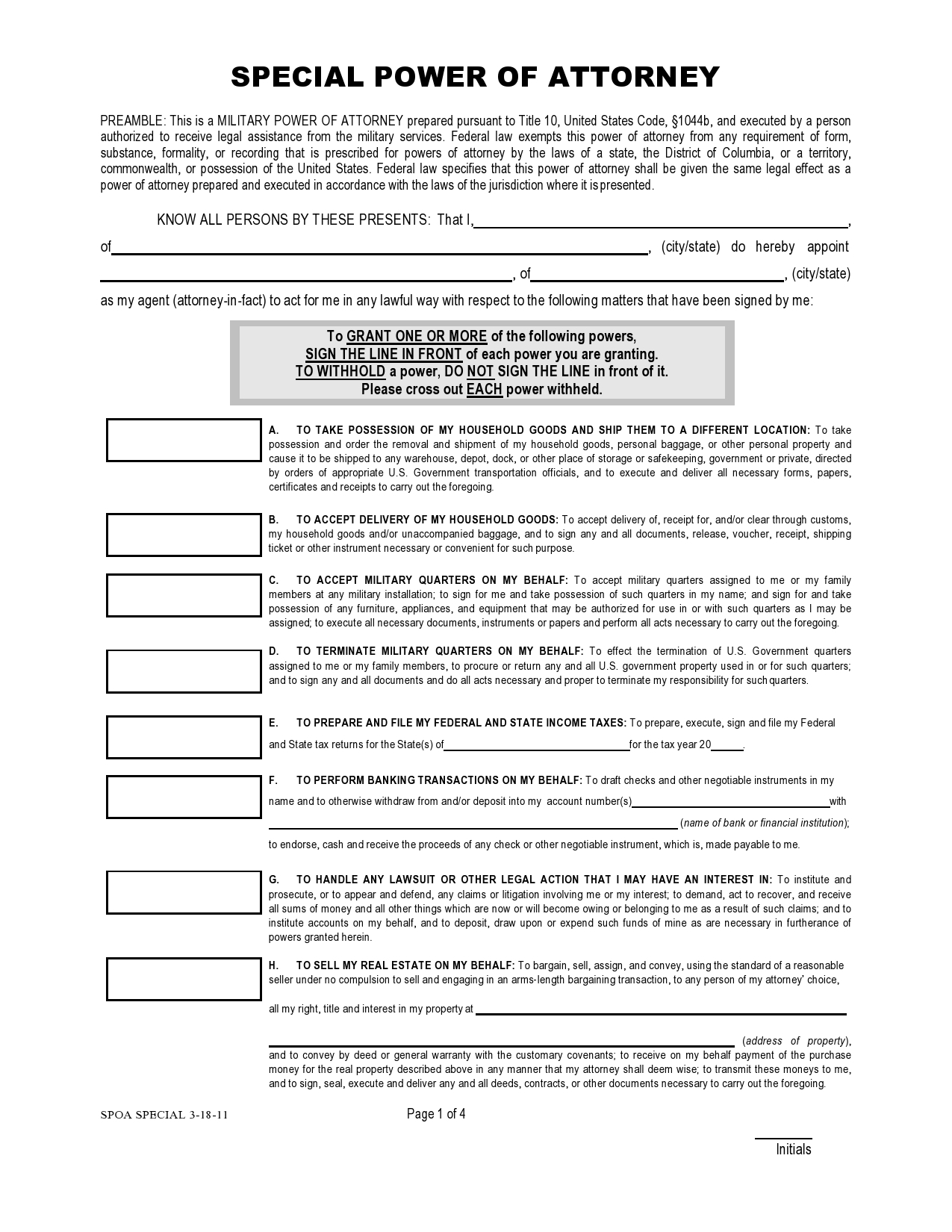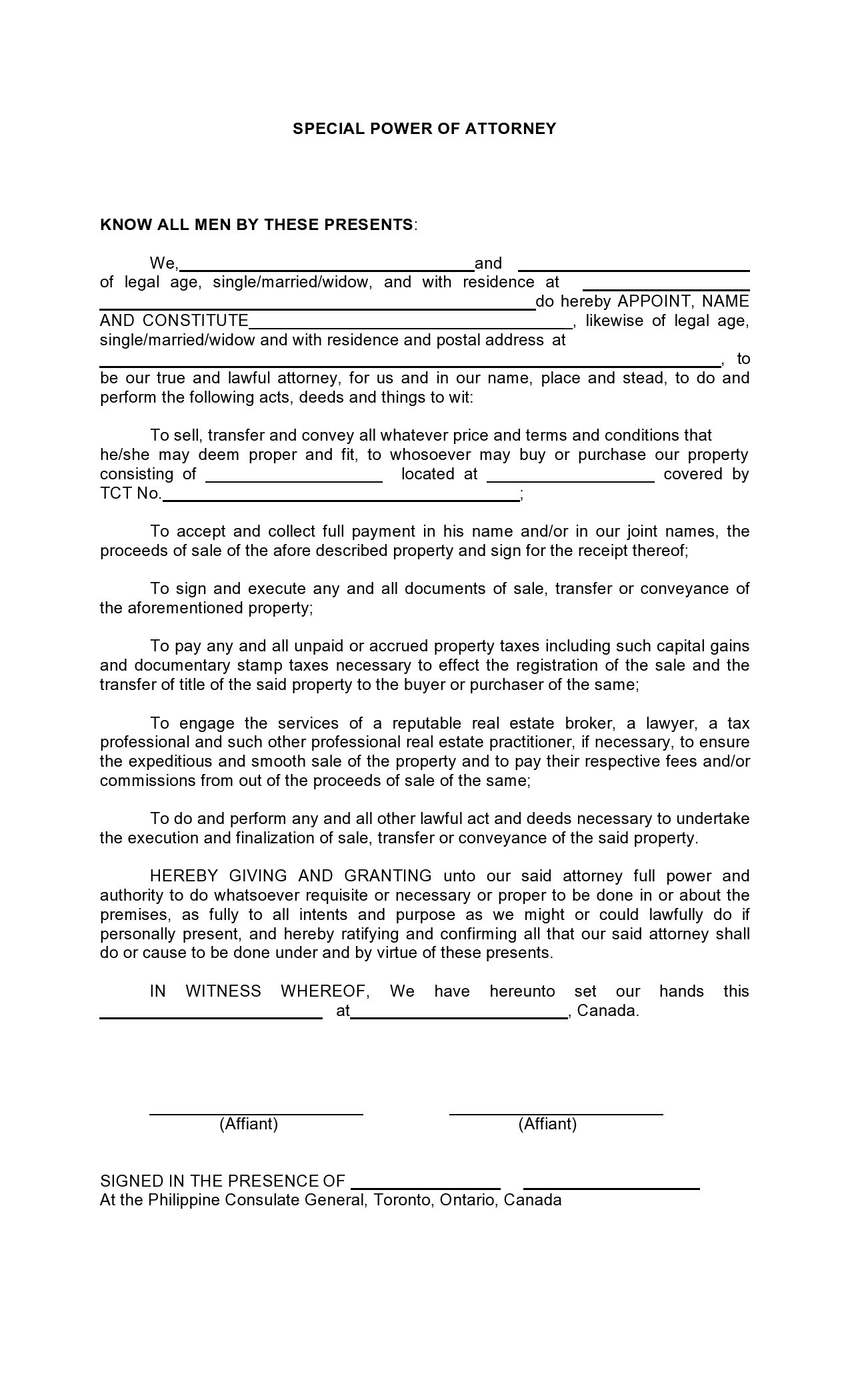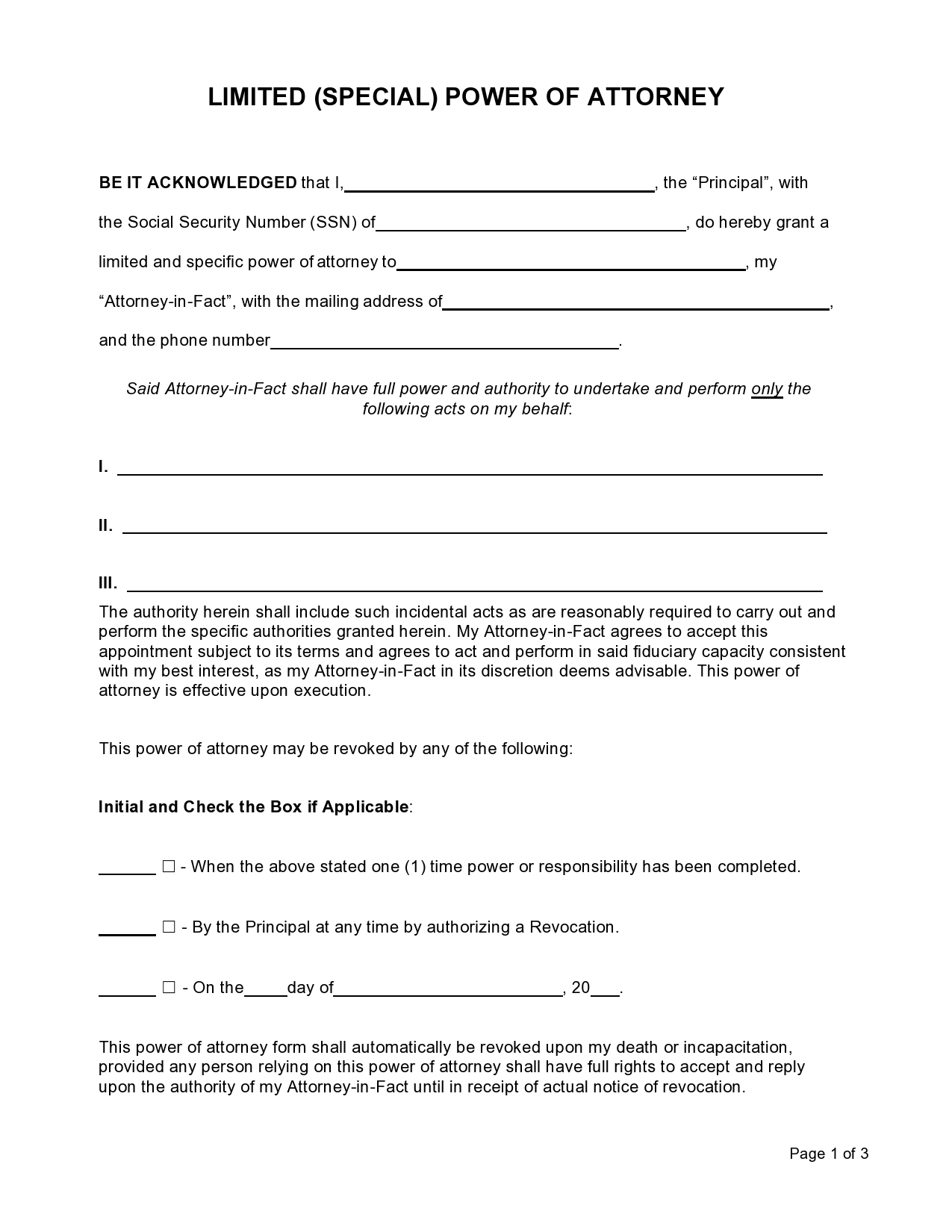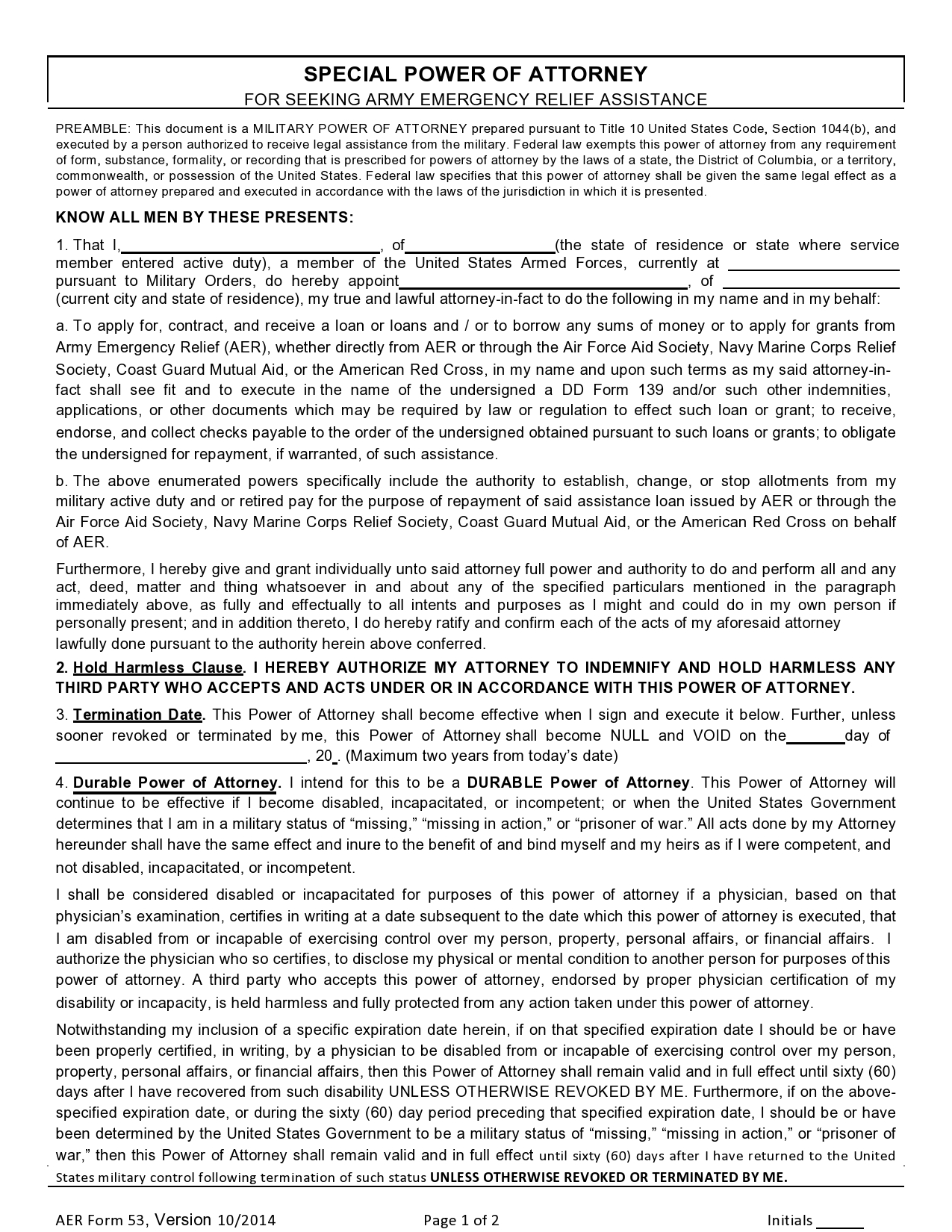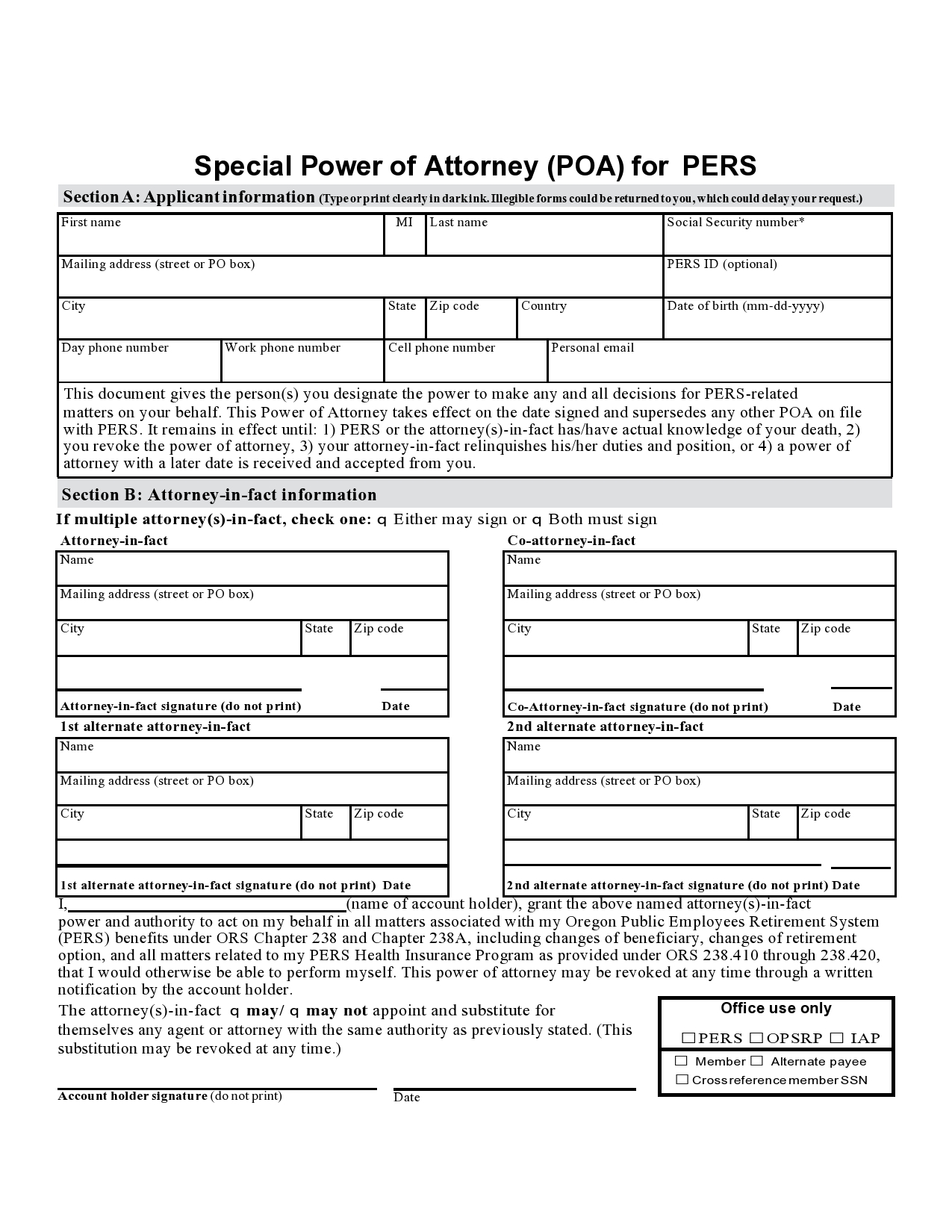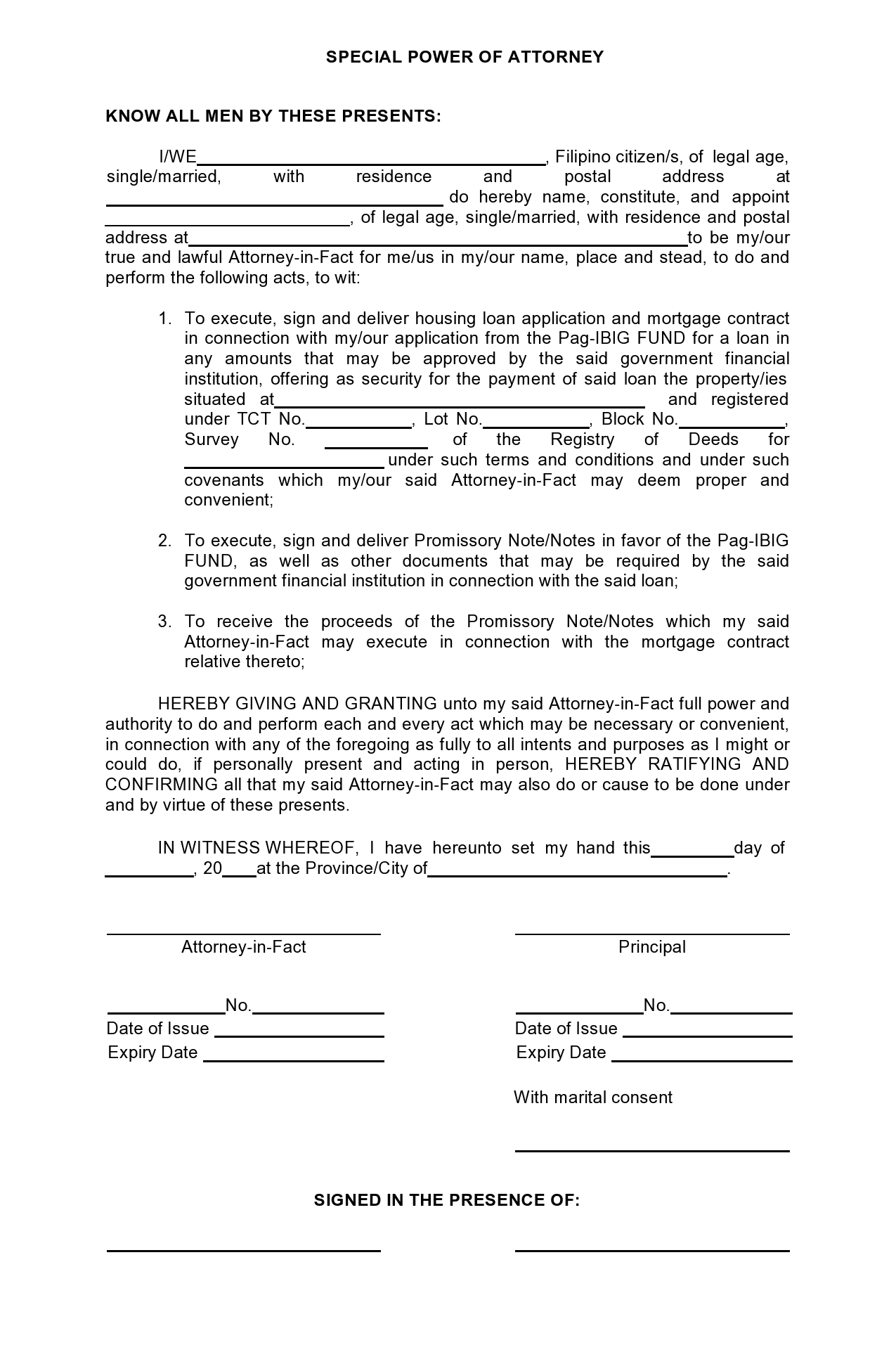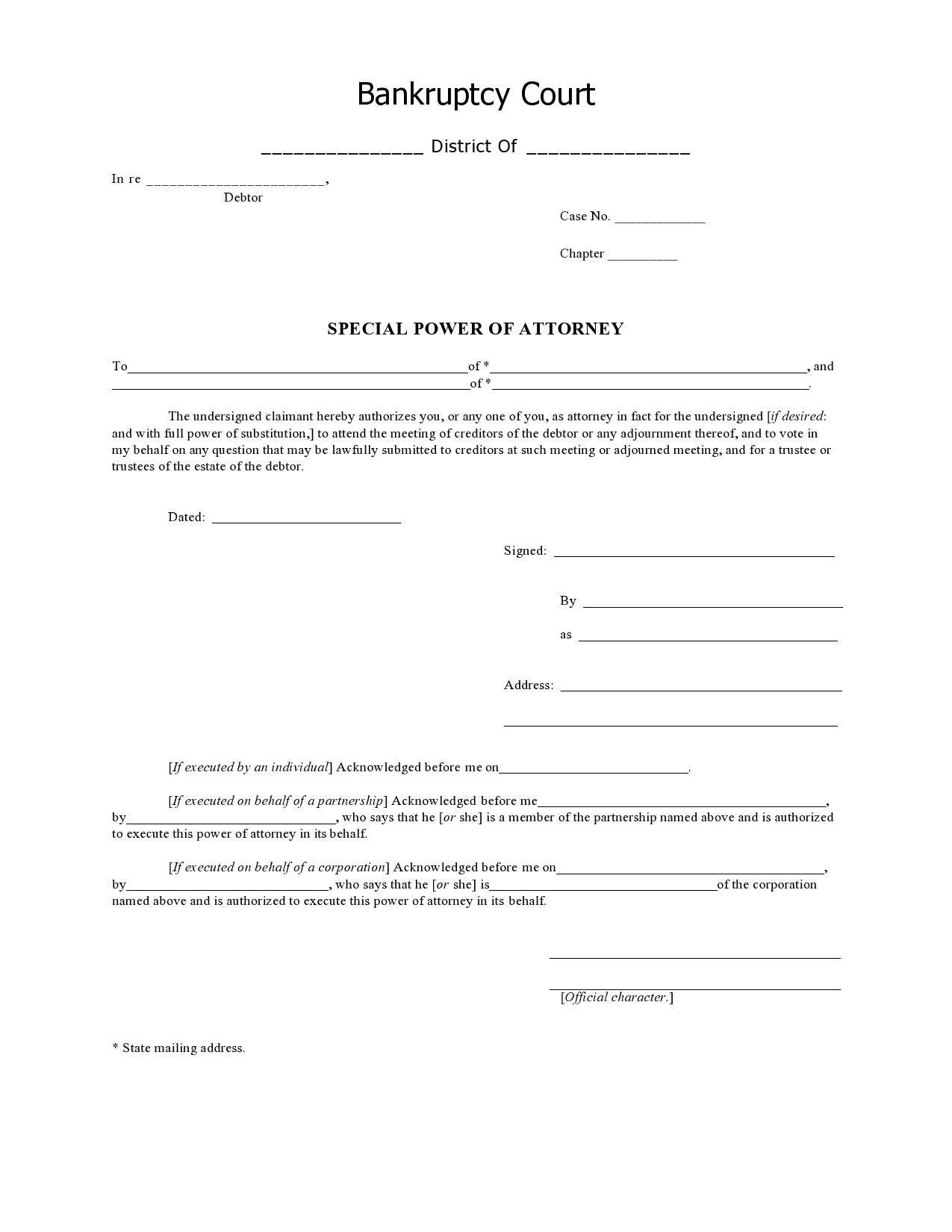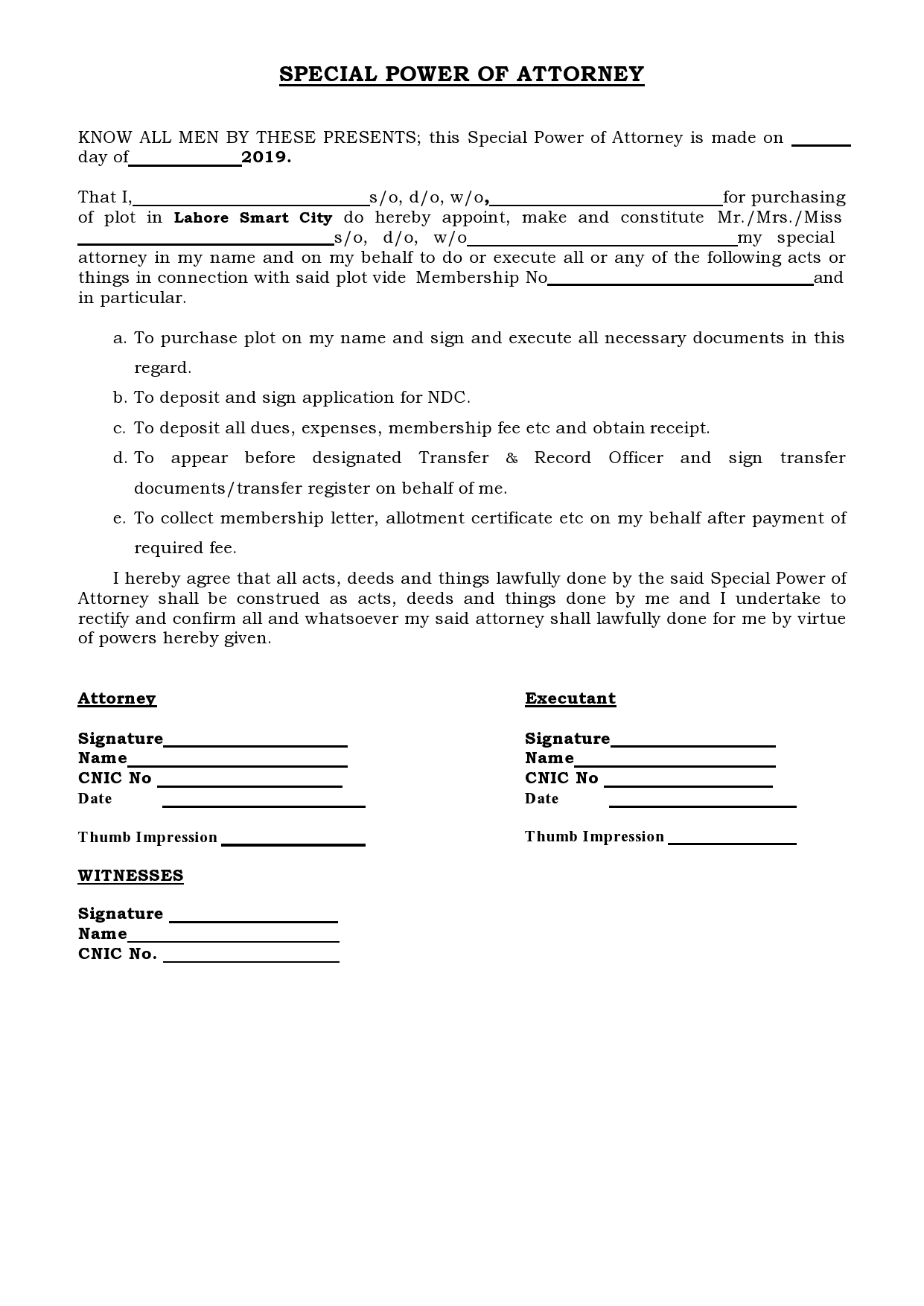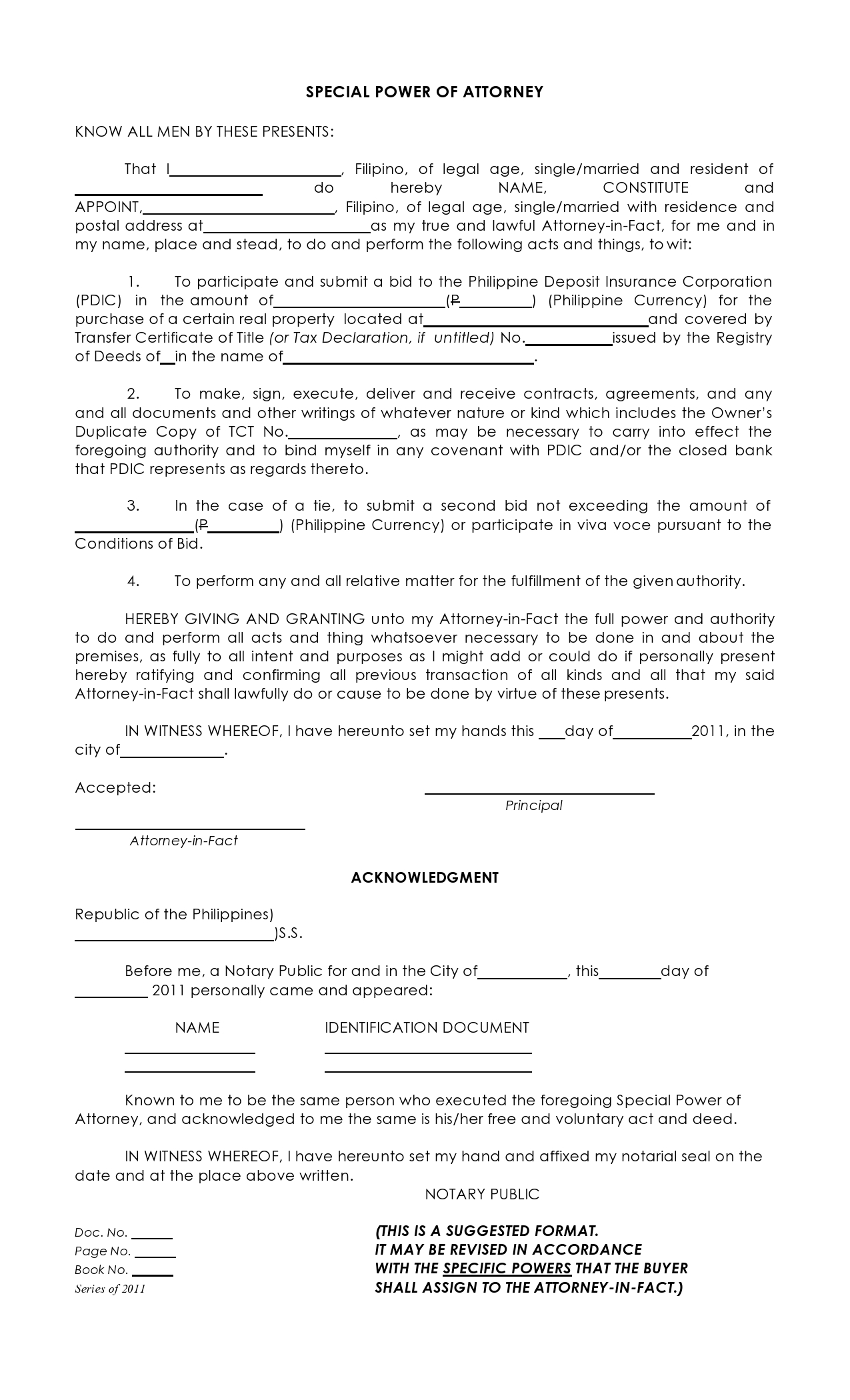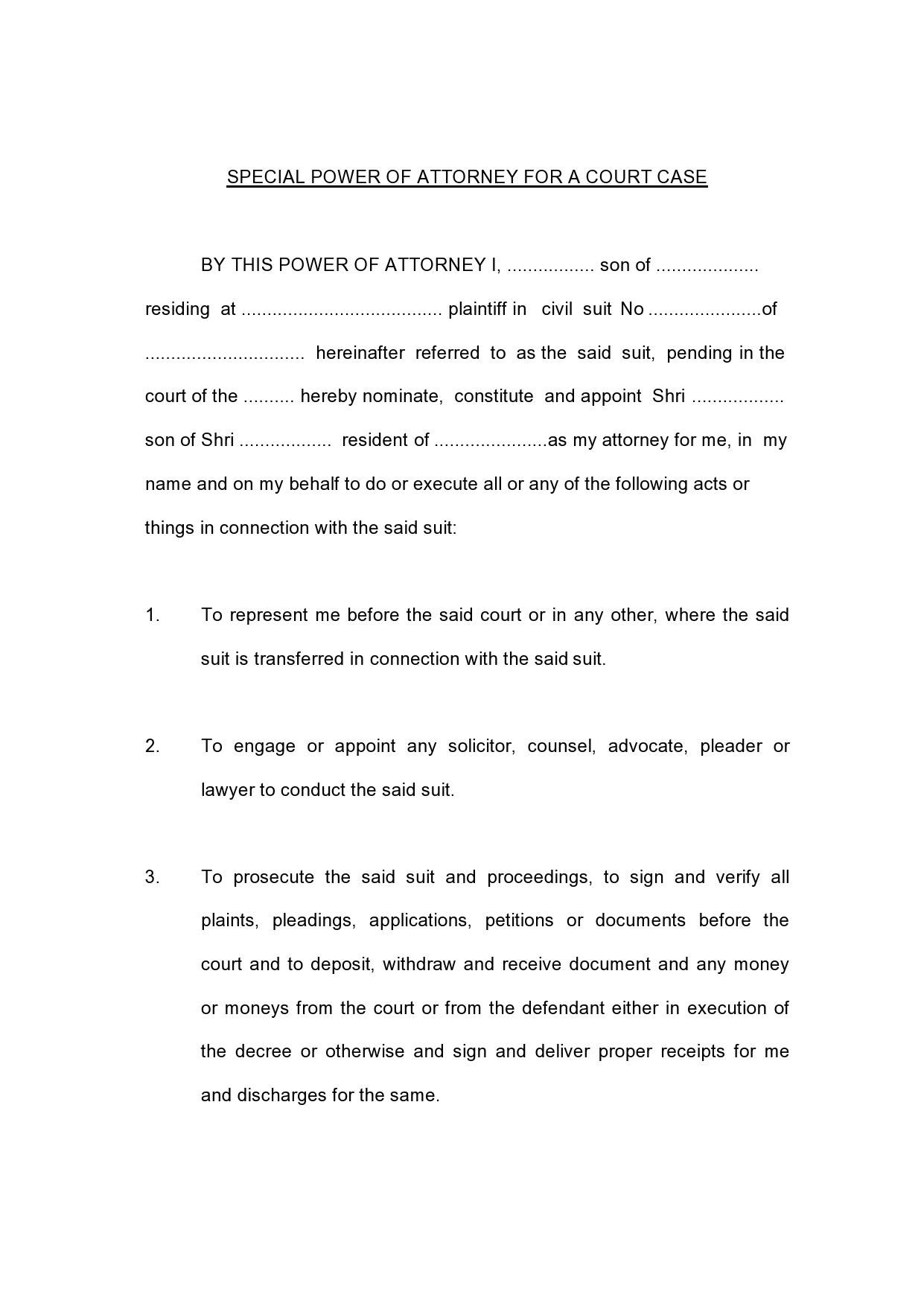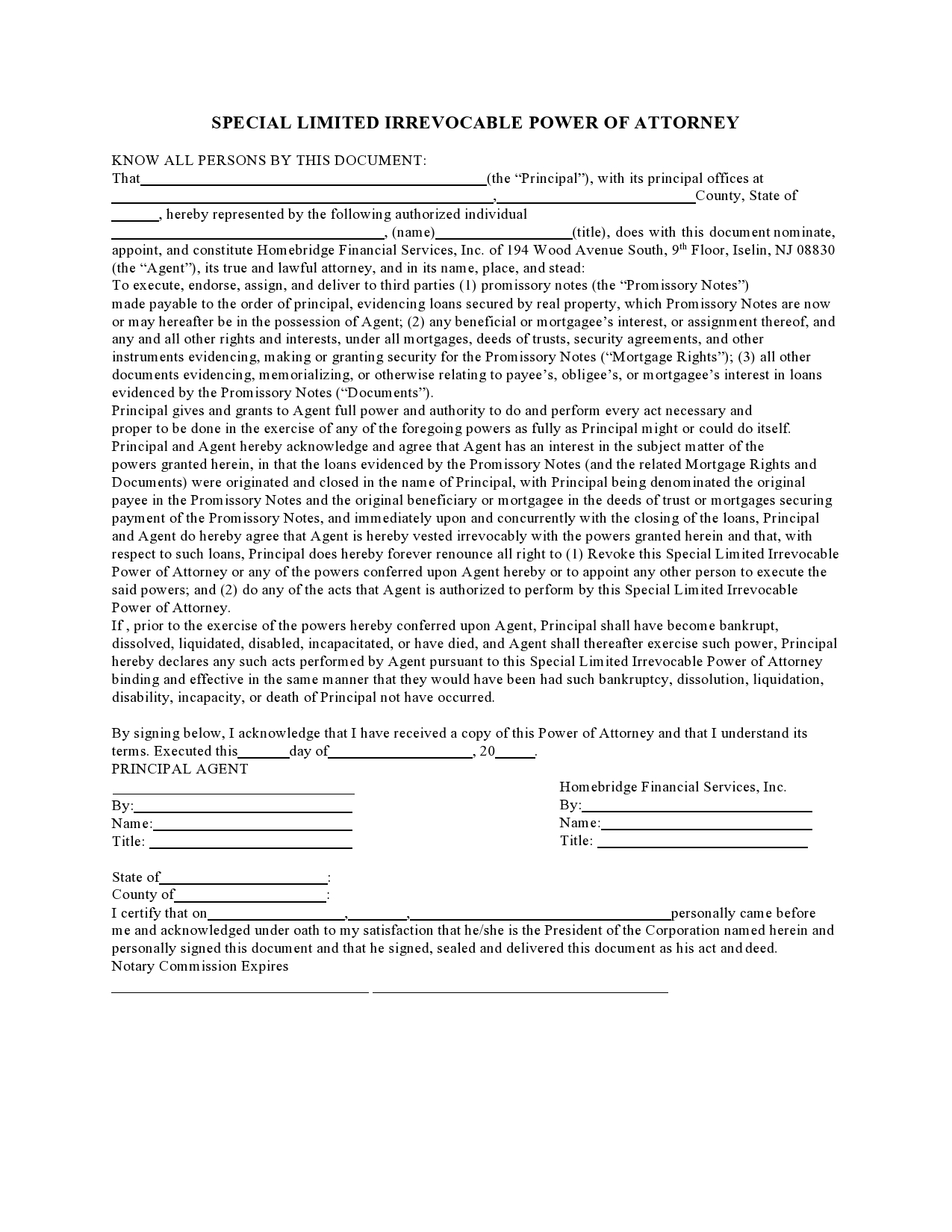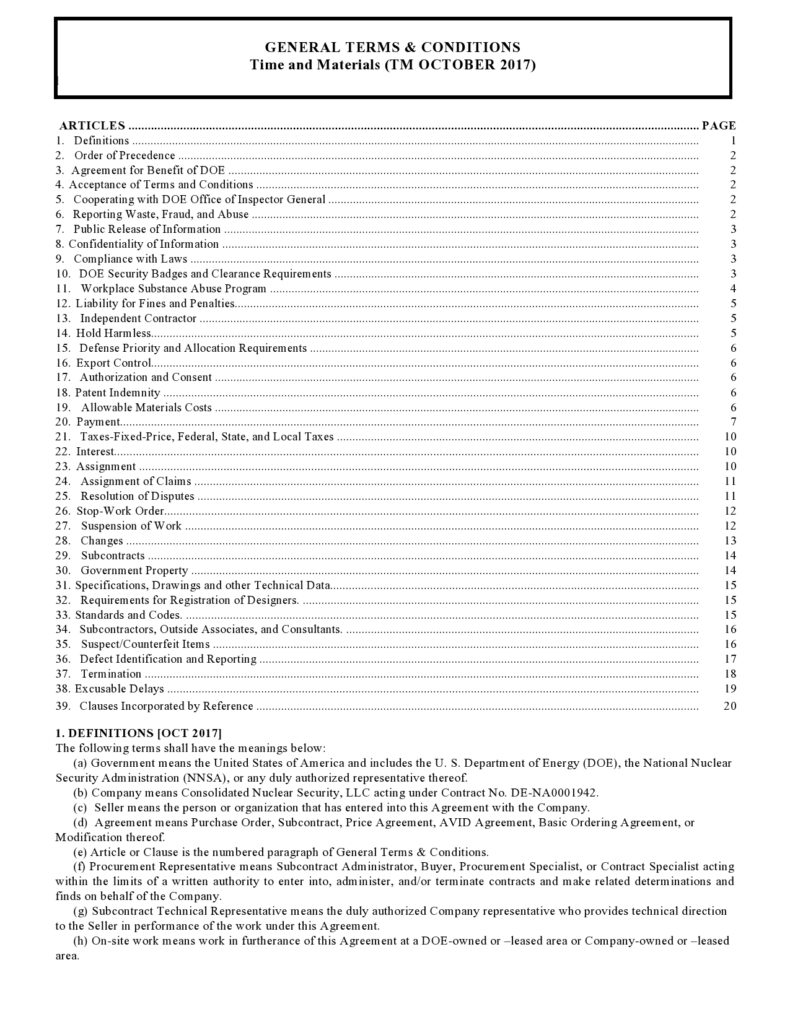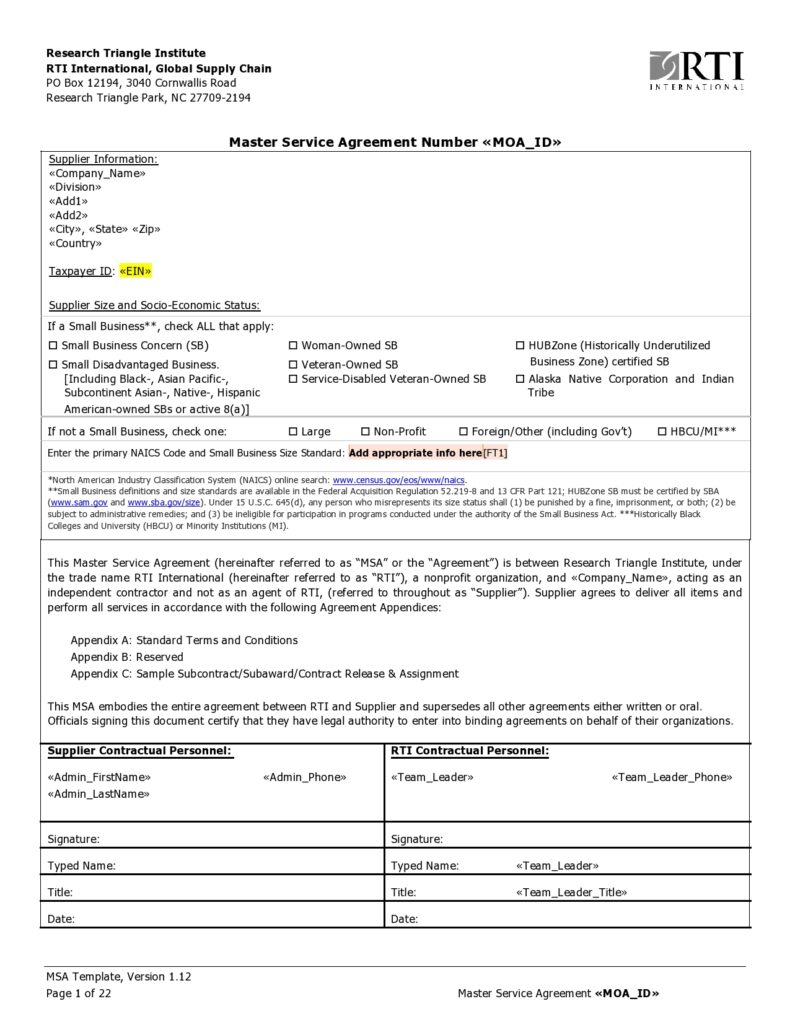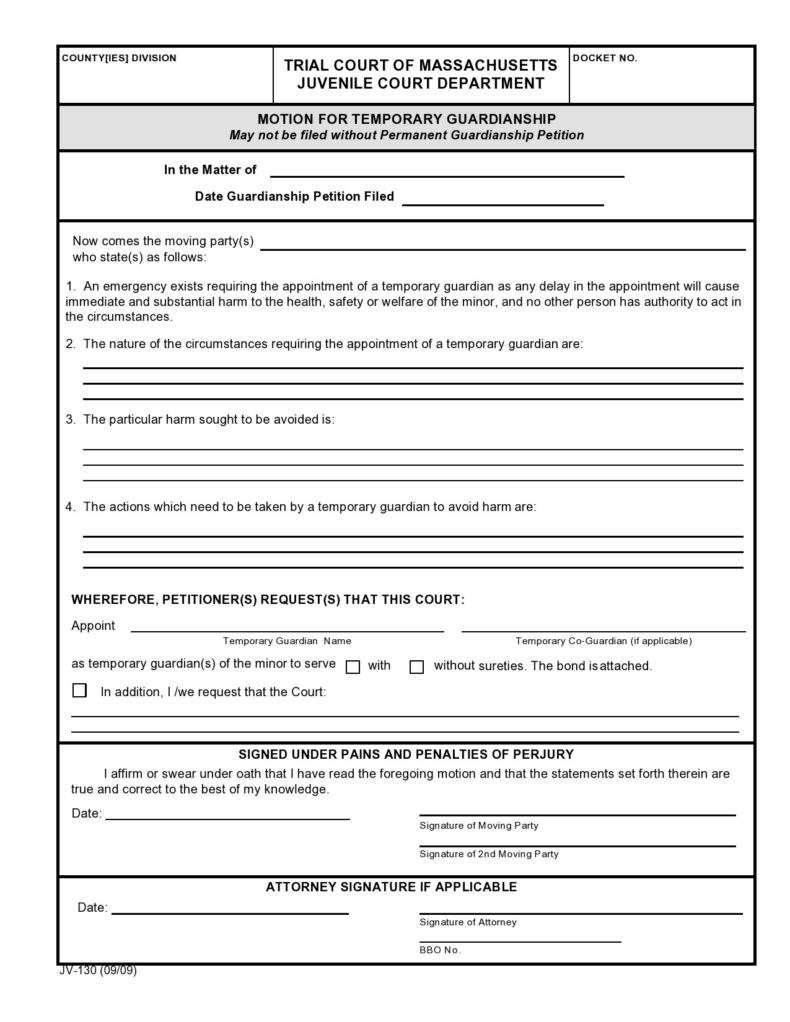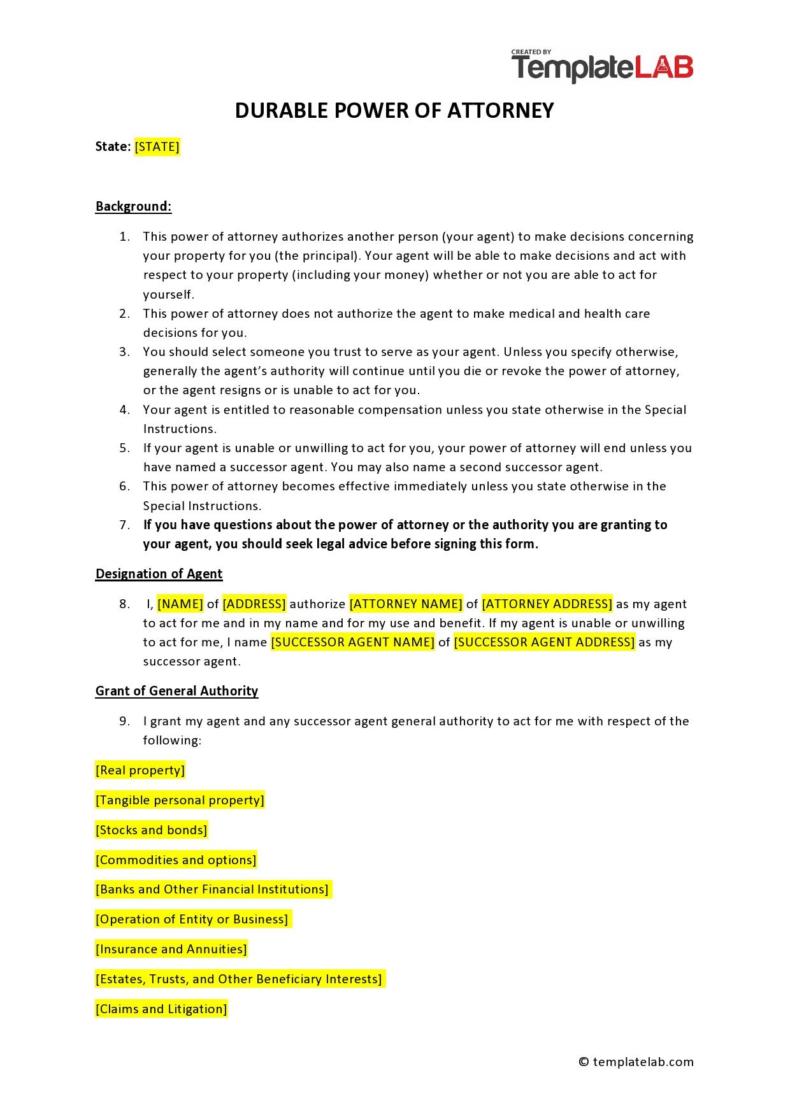A temporary power of attorney can be a very useful document that allows someone to act on your behalf to take care of legal, personal, or even financial matters if you cannot. This document goes by a variety of different names, but it can be used when you are worried about things being taken care of for you while you are away or if you are going to have to take time away from a business or your personal affairs for various reasons.
This document is not the same as a durable power of attorney, as it cannot be used if you should lose your ability to make decisions on your own behalf. This is a specific power of attorney for unique situations that could still apply to your situation at some time in the future. There are some common situations that do arise where this document can be a big help, and you should know more about writing or drafting this document for this reason.
Table of Contents
- 1 Limited Power of Attorney Templates
- 2 What is a limited power of attorney?
- 3 How long does the limited or special power of attorney last?
- 4 Special Power of Attorney Forms
- 5 How to get a limited power of attorney
- 6 Common reasons for using an LPOA
- 7 Temporary Power of Attorney Samples
- 8 How to write an LPOA
- 9 Specific Power of Attorney Examples
- 10 Limited Powers of Attorney Can be Very Useful
Limited Power of Attorney Templates
What is a limited power of attorney?
A limited power of attorney can go by two different names:
- Special Power of Attorney
- Limited Power of Attorney
This power of attorney is granted for a very specific purpose, and it cannot be used in the way that a durable power of attorney can be used for estate management or healthcare decisions when someone has lost their ability to make decisions on their behalf. The LPOA document is used for things like signing for a real estate purchase, transferring money every month from one account to another, or other specific tasks that you need to give someone else the legal right to undertake on your behalf.
Some people use this document to give a family member the power to cash their checks or to open their safety deposit box as well. This can be a big help if you are going to be out of the country or if you do not have the ability to be present for some form of important action and someone needs to take this action on your behalf.
There are two kinds of powers of attorney documents that you might need to know about:
- General Power of Attorney. This power of attorney is used for broad needs that can be handled in place of the party who has created the document. The person named as the agent in this kind of document can take actions of a legal nature, can manage finances, and can make medical decisions for the person who has named them in the POA.
- Limited Power of Attorney or Special Power of Attorney. The special attorney form is used when you want to allow your agent to undertake a single task. This is not a POA that can be used to manage an estate or to take care of someone who is elderly and cannot speak for themselves or make decisions any longer.
How long does the limited or special power of attorney last?
The duration of the special power of attorney can be up to you as the person drafting it. The LPOA can end on a certain date, or it can be used to govern a specific action until the form has been invalidated or replaced by another form of the LPOA. These are the most common reasons that this form will end:
- The principal (the person creating the document) becomes incapacitated
- The principal revokes the POA
- The principal or the agent passes away
- The agent cannot perform their duties or is not willing to do so, and there is no named successor agent.
There are often state-based limitations on the way that these documents can be drafted or executed, and you should know about these before you start writing your LPOA form. The more that you know about the legal side of the use of this important form, the better. You can also seek some advice or support when writing your document from a legal professional.
Often, these LPOA documents are intended to give someone else the power to make important decisions on your behalf, so you do not want to leave this process up to chance.
Special Power of Attorney Forms
How to get a limited power of attorney
You can use a blank LPOA form that has been provided to you and simply fill out this form, or you can write your own LPOA. Both means of securing this kind of agent-based support are legal, so long as the form is completed correctly. These documents are not complex to draft, but you do need to be sure that you know what information needs to be included in them for the form to be useful for the intended purpose.
Make sure that you look at examples of this kind of form that are specific to your state as well. There might be limitations on the kinds of powers that you can give to those you have named as your agent in specific states. You could also be required to add additional information to the form based on the language and requirements that need to be included in your specific state.
There is nothing worse than counting on an agent to be able to perform a task or job for you, only to find out that the LPOA that you have made does not actually allow them to undertake that task. You will want to eliminate this chance for confusion and problems by being sure that you have looked at your state requirements for this document carefully.
Common reasons for using an LPOA
You might be wondering why you would not just draft a durable power of attorney instead of an LPOA for your needs. There are instances where a durable power of attorney can be of more use to you, but you need to remember that the person who is named as an agent in this kind of form will have complete control of your decision-making needs. You might not have anyone in your life that you want to allow this much control over your finances or your well-being.
A limited power of attorney is commonly used for parents who need someone to serve as a guardian to their children for a specific duration of time. It can also be used by ill or aging adults who are trying to get some support with financial activities or even things like banking. Real estate transactions where you cannot be present for the negotiation of the deal itself and the signing are often protected by an LPOA as well.
Travelers are also often advised to make temporary powers of attorney for times when they are not going to be at home, and someone might need to take care of their finances and property while they are away. Investment managers and financial managers are also often given an LPOA to act on behalf of their clients. Even tax preparation can necessitate this kind of form, and military people often have an LPOA on file for someone to take care of their affairs at home while they are deployed.
Temporary Power of Attorney Samples
How to write an LPOA
- Designate an Agent. The agent will be the person who has the right to take care of the tasks or affairs that are governed by the LPOA. This person does not have to be related to you and can be anyone who is legally of age in your state to handle the process that is stated in the LPOA. You will need to use the full legal name of the person as well as list their address and phone number.
Remember that it is always a good idea to list a second person to fill in for the first named agent if something happens that incapacitates your first agent or makes them unable to perform the duties that are governed by the LPOA. - Grant Authority. The authority section of the LPOA will indicate what the agent can do on your behalf. This might be a specific single task, or it could be any tasks related to banking or any tasks related to finances of another nature. The things that you want this person to do will need to be specifically described so that there is no confusion about what kind of power they have access to.
You can also include a Limitation on Agent’s Authority clause in this part of the document that prevents the agent from using your property without express permission from you to do so. This is not commonly required, but there can be situations where it is needed. - Special Instructions. This is the part of the LPOA that can offer you the chance to indicate any specifics that you want to have, followed by the power of attorney agent that you are naming. These can be unique or highly specific kinds of requirements, and the form will necessitate that these actions are taken when the person is undertaking the tasks that are governed by the LPOA.
- Effective Date. This is the section where you indicate when the POA will take effect and what circumstances must be present for it to be used. This might be a specific date, a specific event, or some other form of action that indicates that the document has become active and binding. You can also state that the document becomes active when it is signed by both parties.
- Termination. The endpoint of the LPOA can be known at the time that it is signed, and in the case of someone who is traveling but knows when they will be home, there will be a known end date for the LPOA before it is signed. There are other circumstances where you might be sure about the end date of your LPOA as well.
In most cases, however, things like the incapacity of the person drafting the document or a change in the finances, or other situations of the person the agent is acting for can lead to the termination of the LPOA. - Guardian Nomination. If the LPOA is for guardianship purposes, you will need to indicate who is being given guardianship and which minors or elderly adults, or even pets are being given a guardian in your stead. This is not always a required addition to an LPOA, but when this is the reason for creating the document, you need to be clear about who is getting guardianship and of which person in this part of the document.
- Signatures. Both you and your agent will need to sign the document and date your signature lines for this to be a legally binding form. This form will need to be witnessed in all cases, and in some states, the LPOA will have to be witnessed by a notary. You will need to check on these requirements for your state before you assume that you can just sign with basic witnesses. The signatures on any legal document impact its use and its validity, so you need to be sure that you take care of this part of the document.
Specific Power of Attorney Examples
Limited Powers of Attorney Can be Very Useful
There are many instances where a limited power of attorney can be a big help for you and your loved ones. If you are going to be traveling somewhere for a long period of time or your kids need a temporary guardian, this form can be ideal for your needs. You might also need to create this kind of form to allow someone to take care of specific financial decisions and actions on your behalf.
There are many reasons that you might want to create a limited power of attorney document, and you can easily do so using this guide. This is one of the best ways to make sure that someone can act on your behalf for the time period when you need this kind of support without having to grant someone complete control of your finances and decision-making power. The LPOA is a commonly used document in many industries as well as for personal reasons, and knowing how to create one can be very helpful.

